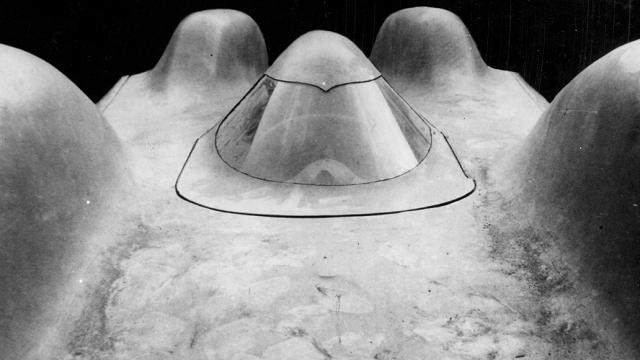Chasing speed records was, is, and always will be a crucial driving force in developing the kinds of vehicles people dream about. And over the past century, we’ve seen these speed machines go from early records, like 100 kmh (or 62 mph), to supersonic speeds.
The following selection of land speed record cars — such as the Green Monster, which we remembered last week — shows monster vehicles designed specially to overcome competitors’ records. Their history is truly fantastic, sometimes crazy, often deadly.
Here’s Belgian race car driver Camille Jenatzy and his torpedo-shaped electric speed record car. The “La Jamais Contente” was the first purpose-designed land speed racer. On April 1899, Jenatzy reached 105.88 km/h (65 mph), the first record over 100 km/h (62 mph).
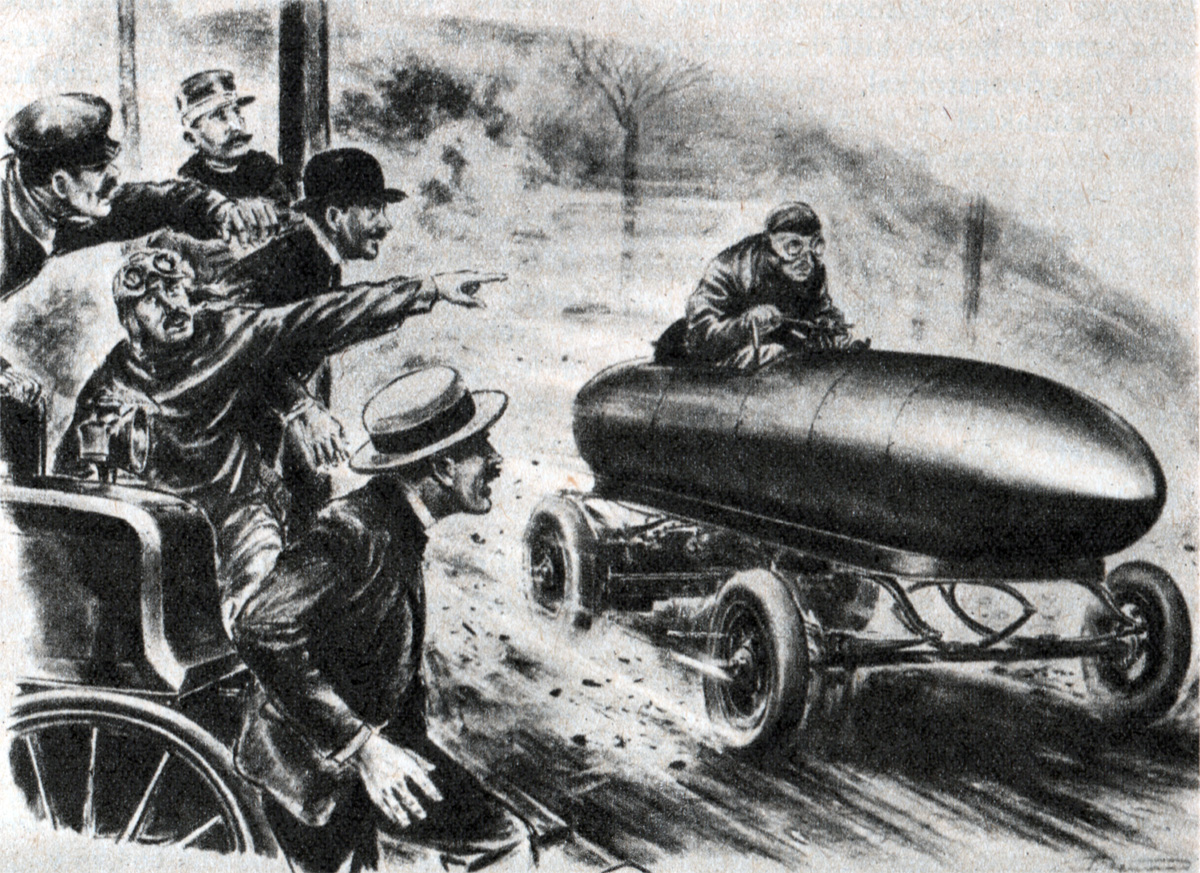
In: Korunk technikája, 1964. Gondolat Kiadó, Budapest, 1964.
Arthur MacDonald at the wheel of a Napier racing car. He captured the land speed record at Daytona beach in a Napier in 1905.
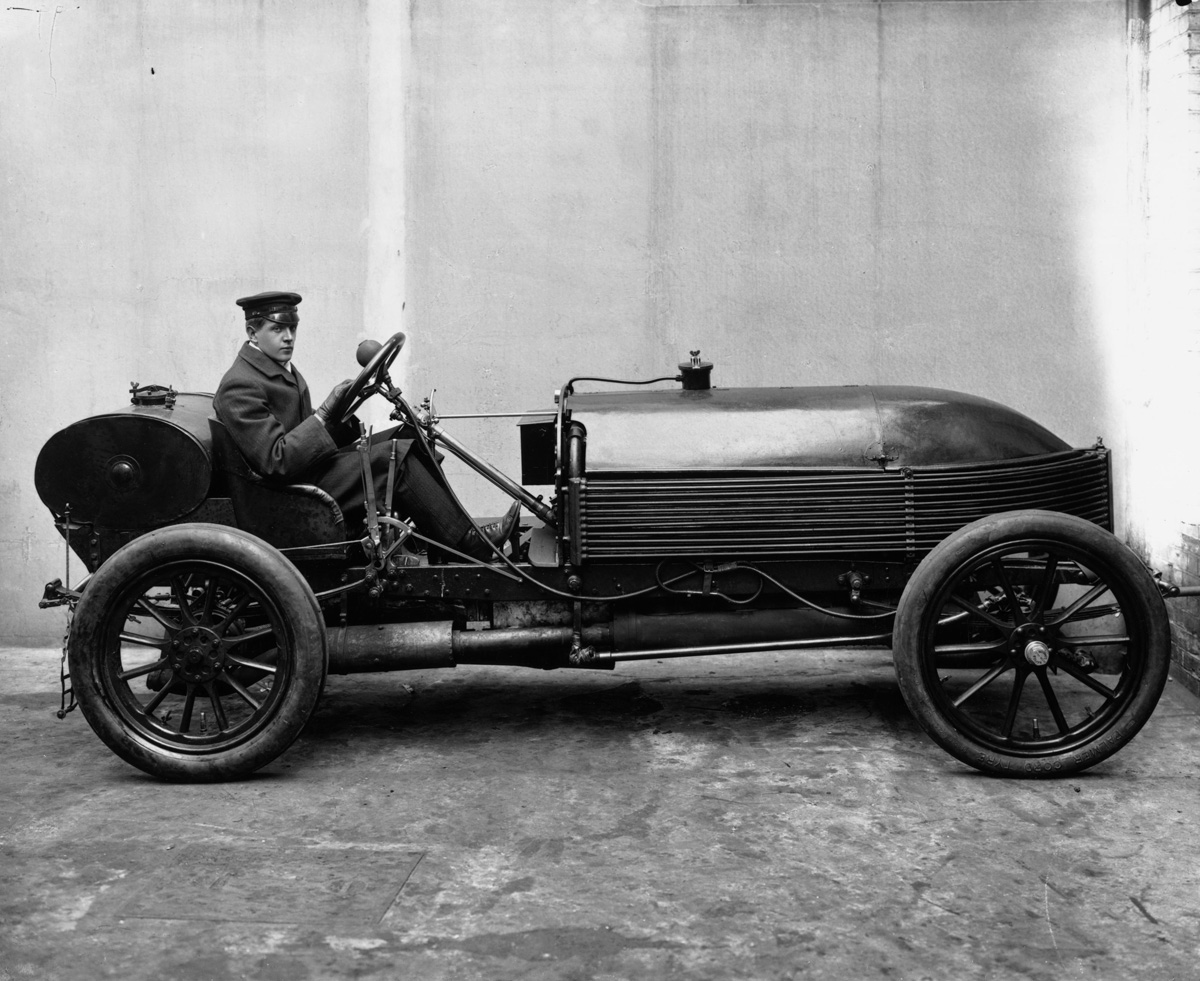
Photo: London Stereoscopic Company/Getty Images
Babs, aka Chitty Bang Bang 4, was John Godfrey Parry-Thomas’s speed record car. It set the record at 270 km/h, or just over 167 mph, on April 28th, 1926. The Welsh engineer and racer was the first driver to die during a land speed record attempt, in 1927.
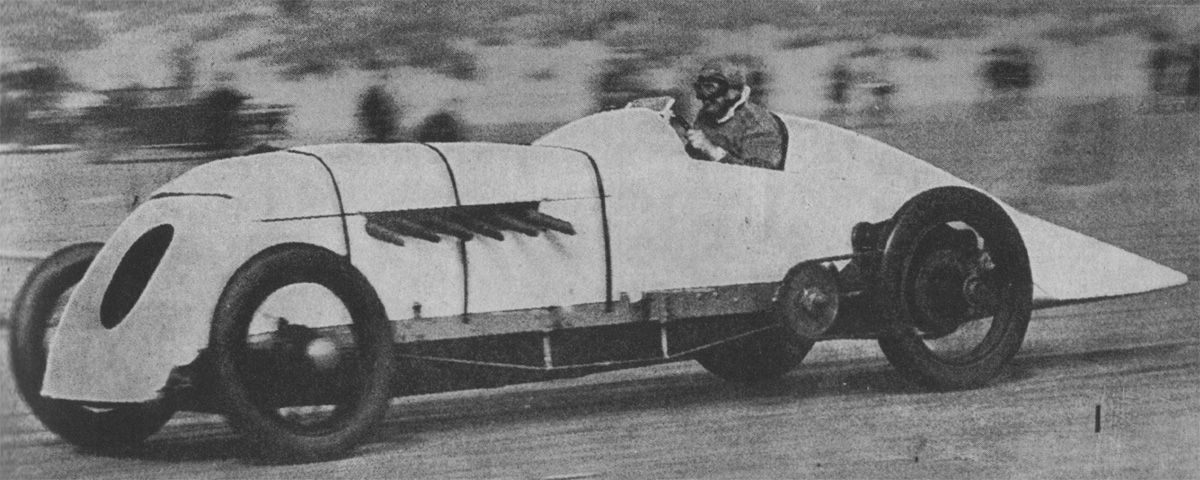
Photo: Wikimedia Commons
World land speed record holder Malcolm Campbell during an attempt to break the land speed record in his Napier-Campbell Blue Bird II, at Pendine Sands, Carmarthen Bay, Wales, January 23rd, 1927.
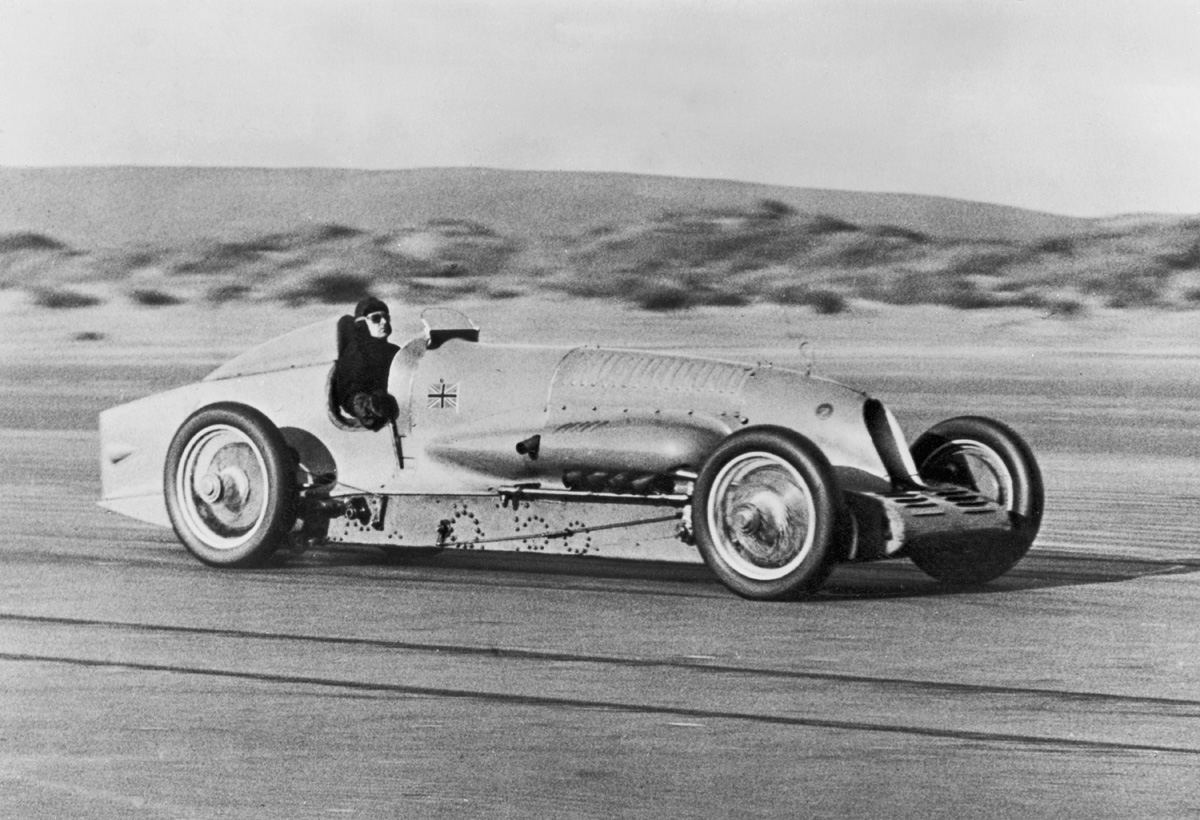
Photo: E. Bacon/Topical Press Agency/Getty Images
The 1000 horsepower Sunbeam Mystery, in which Major Henry Segrave set a world land speed record of 327 km/h (or over 203 mph) on March 29th, 1927.
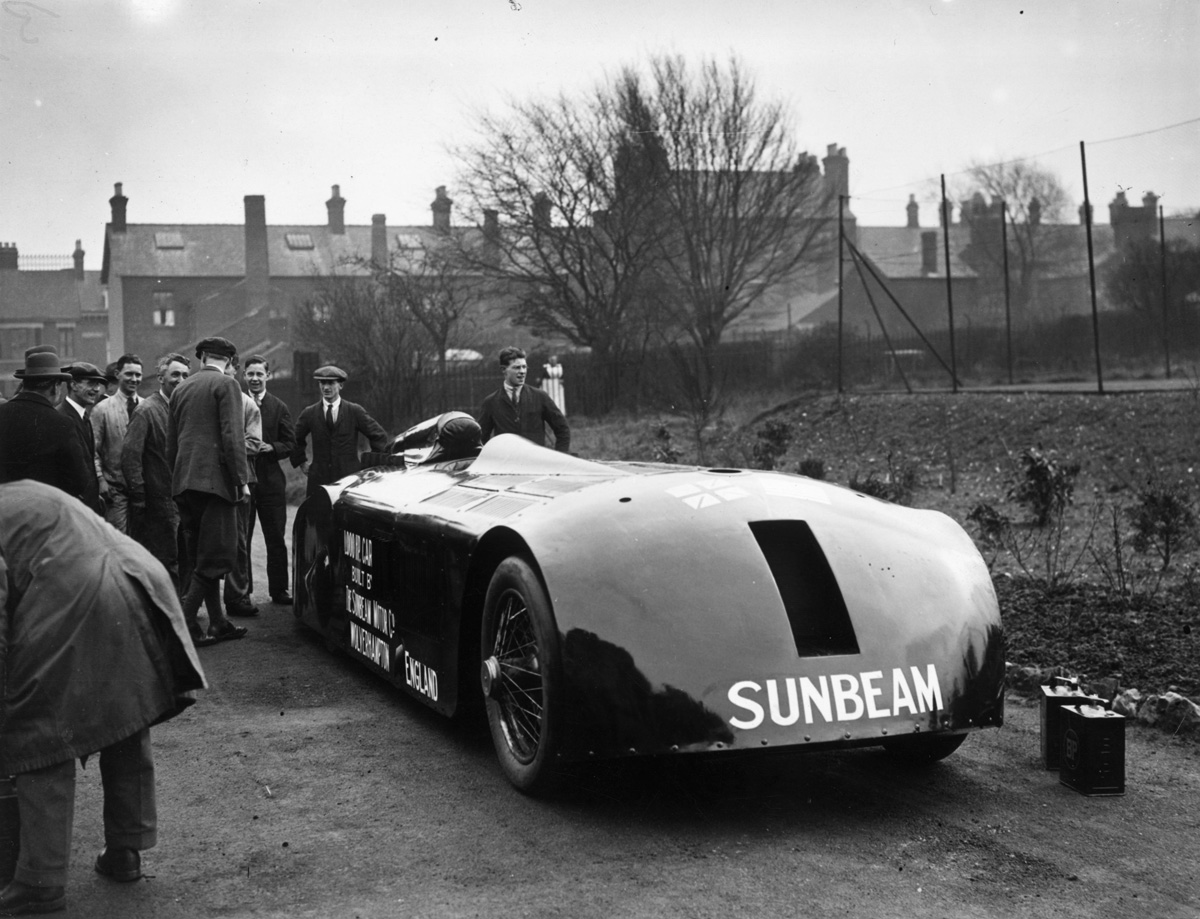
Photo: E. Bacon/Topical Press Agency/Getty Images
November 25th, 1927: Jules Foresti drives his Djelmo car down the ramp at Pendine Sands Camarthen for an attempt at the land speed record.
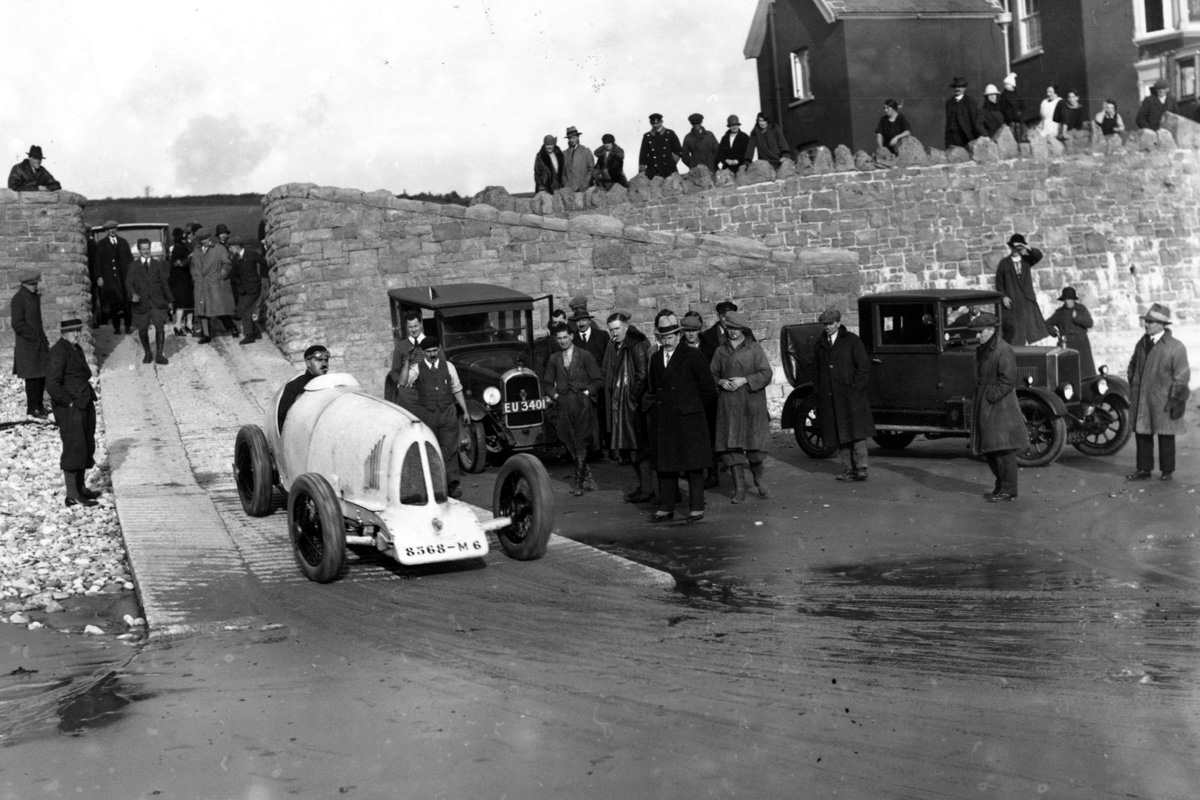
Photo: L. Blandford/Topical Press Agency/Getty Images
American racer Ray Keech in the White Triplex Special as he passes the flag to record a new World Land Speed Record of 333 km/h (almost 207 mph) in Daytona Beach, Florida, on April 21, 1928.
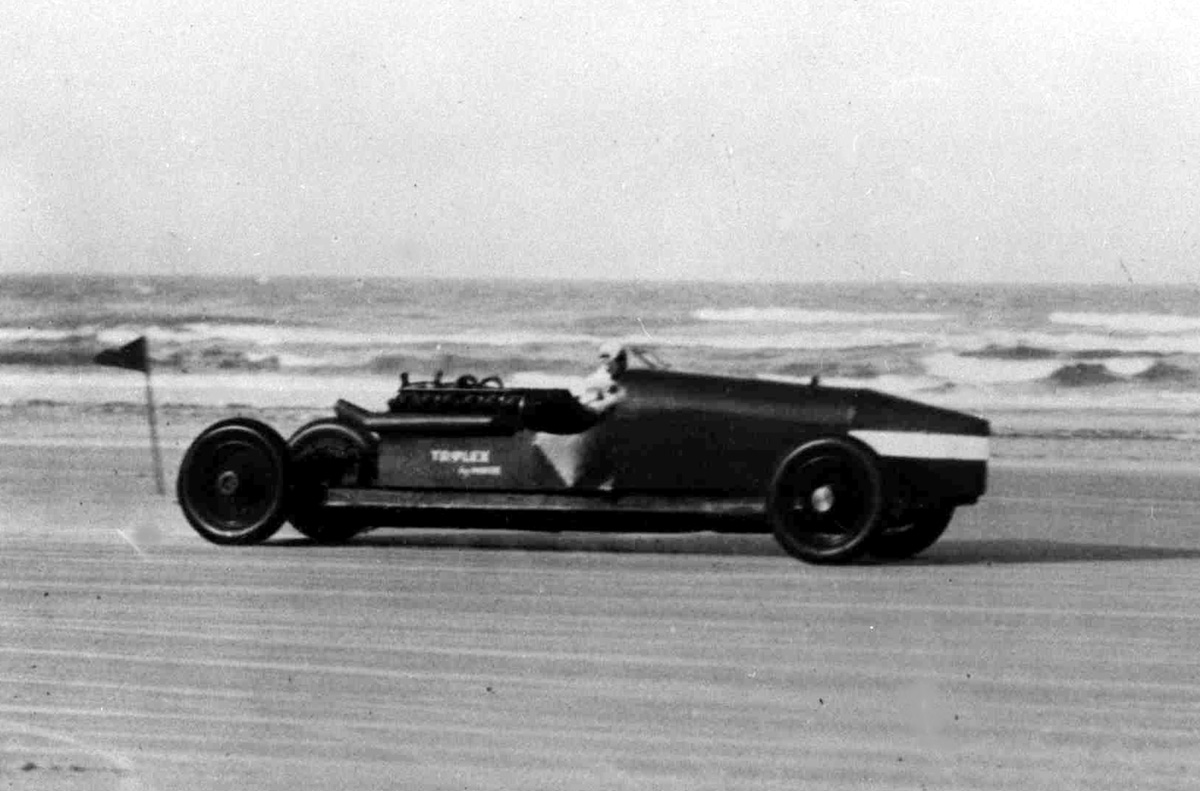
Photo: AP
American racing motorist Frank Lockhart, before his attempt on the world land speed record, in his Stutz Black Bear on Daytona Beach, Florida, on April 25, 1928. Lockhart was killed in his attempt.
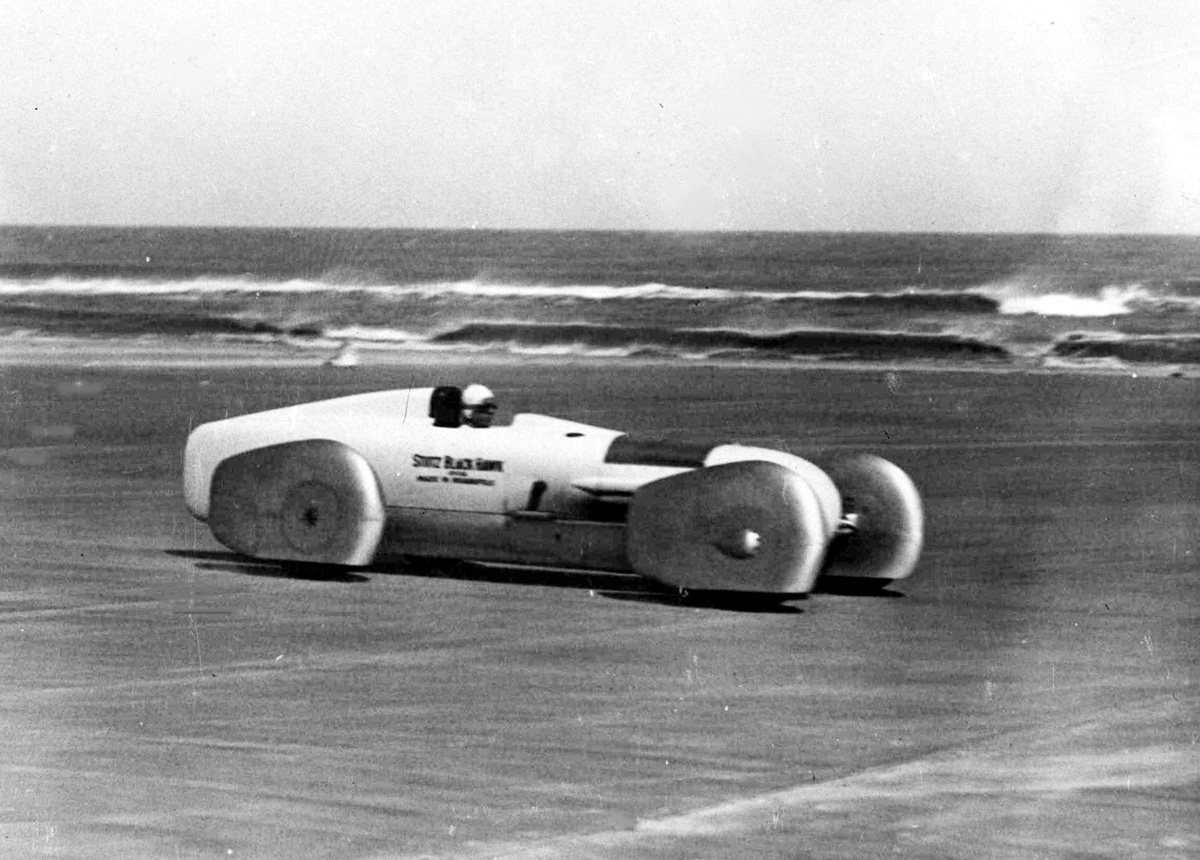
Photo: AP
January 14th, 1929: Napier-Campbell ‘Blue Bird III’, a Napier Arrow Aster Car belonging to Malcolm Campbell, with its engine exposed.
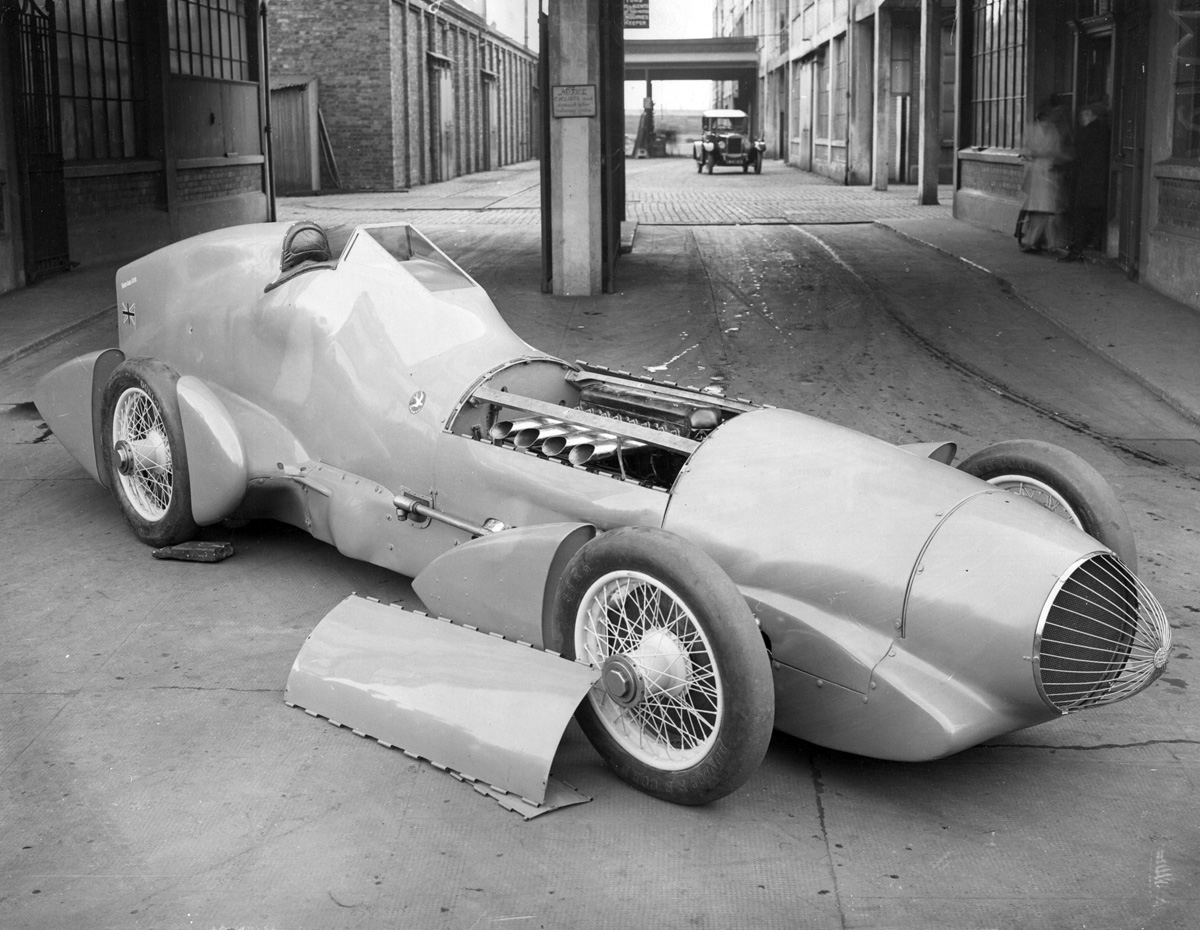
Photo: Edward G. Malindine/Topical Press Agency/Getty Images
April 1929: The Golden Arrow, a record breaking car in London. Prior to this, Major Henry Segrave set his final land speed record at 372 km/h (231 mph) using this car in Daytona, in March.
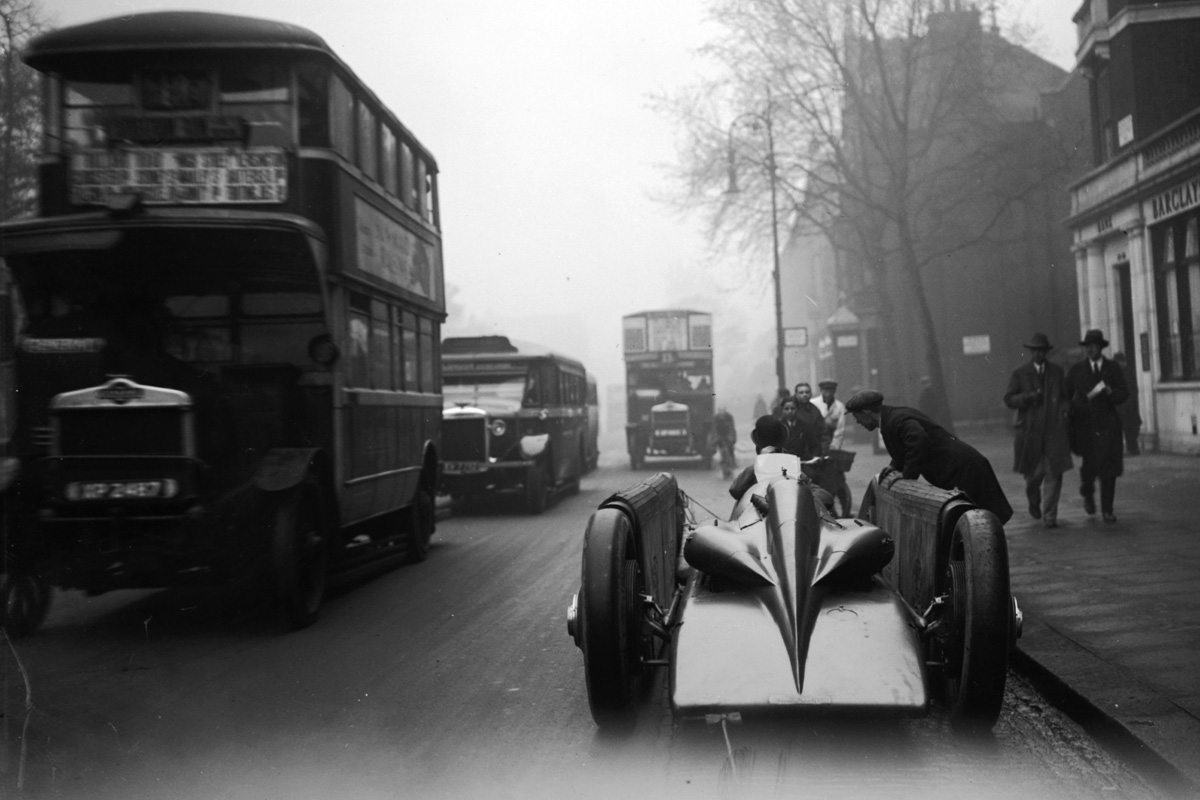
Photo: Fox Photos/Getty Images
British racing driver Kaye Don and his new racing car the Silver Bullet at Wolverhampton, England on February 21, 1930.
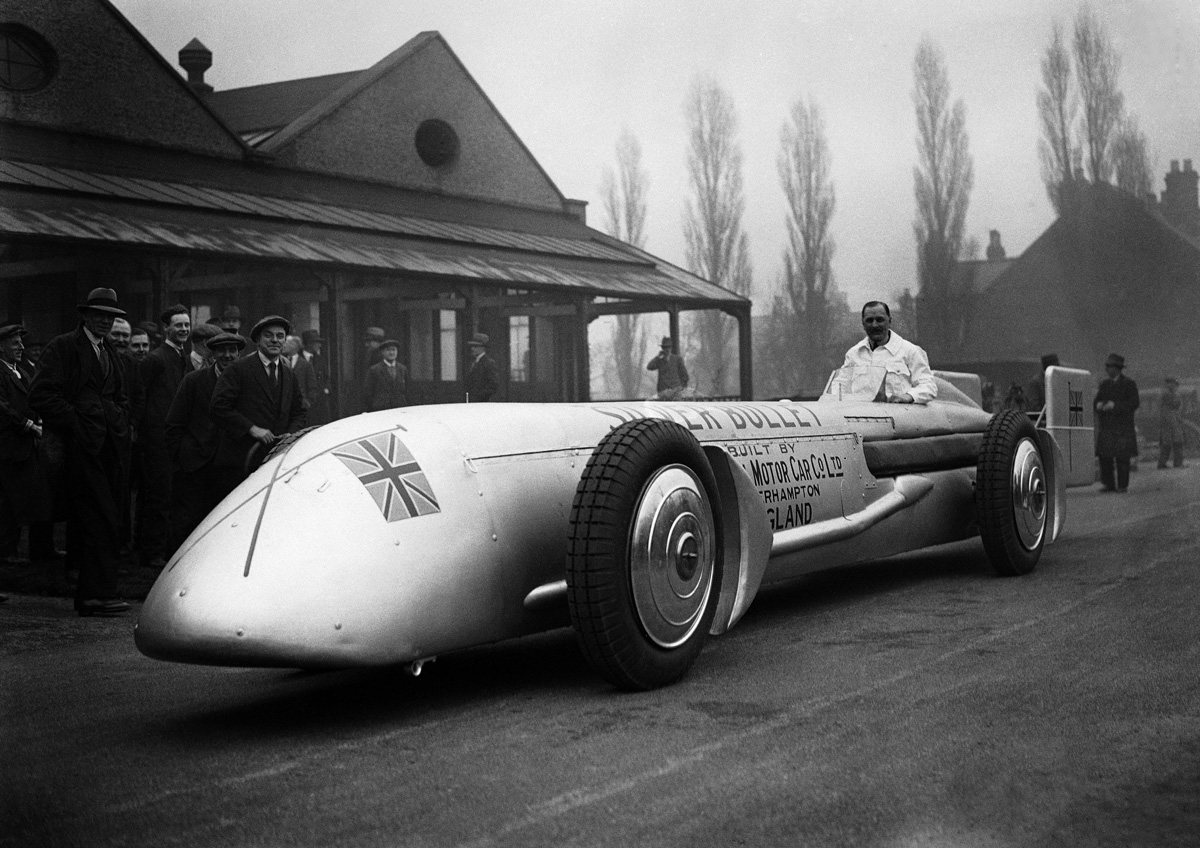
Photo: Putnam/AP
March 27th, 1930: Kaye Don takes the Sunbeam Silver Bullet on a trial run at Daytona Beach, Florida. Powered by two supercharged engines of 24 litres each, the car failed to achieve any records.
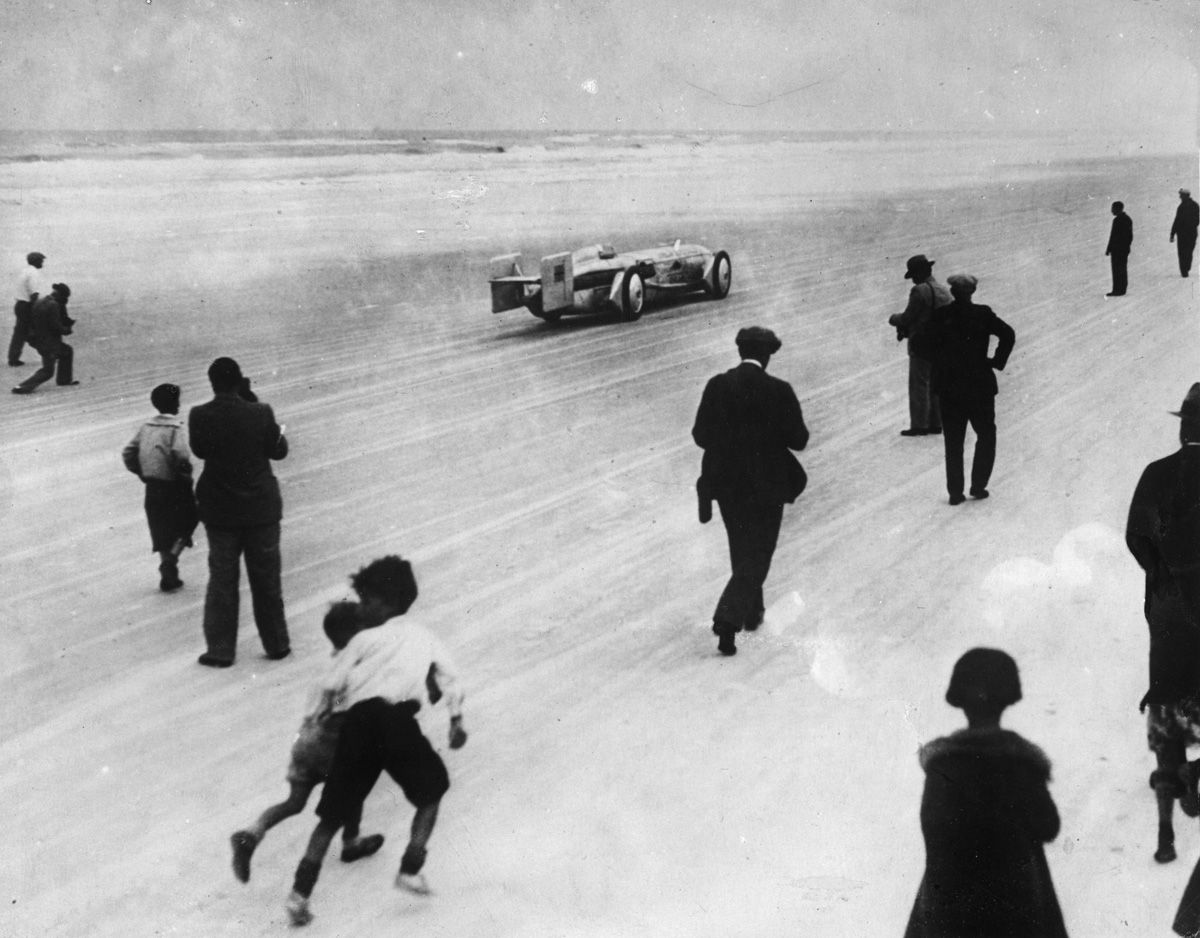
Photo: Keystone/Getty Images
British racing driver Malcolm Campbell with his son Donald standing by the Campbell-Napier-Railton Blue Bird, the car in which Malcolm Campbell set the land speed record of 396 km/h (246 mph) on February 5, 1931.
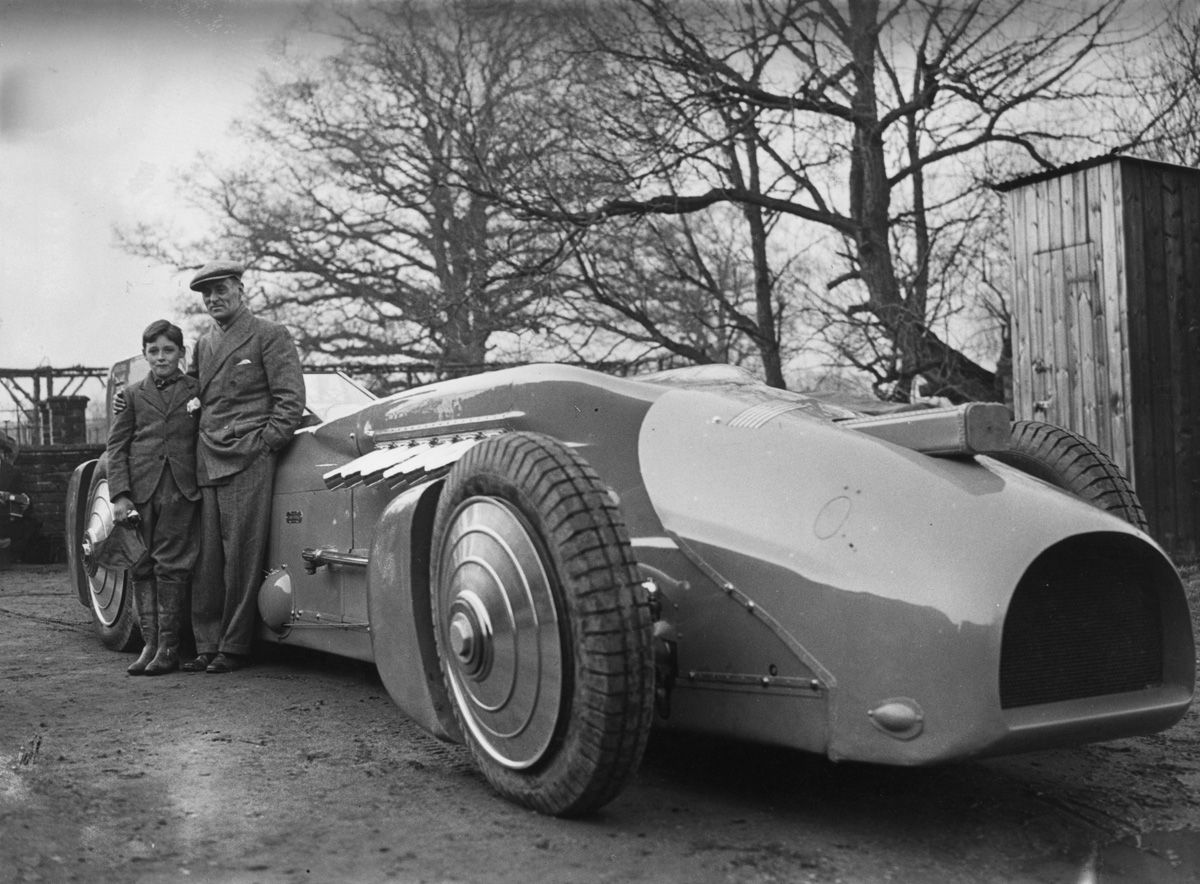
Photo: H. F. Davis/Topical Press Agency/Getty Images
The Campbell-Railton Blue Bird, Malcolm Campbell’s final land speed record car. Its first run was at Daytona, setting a record of 438 km/h (272 mph) on February 22nd, 1933.
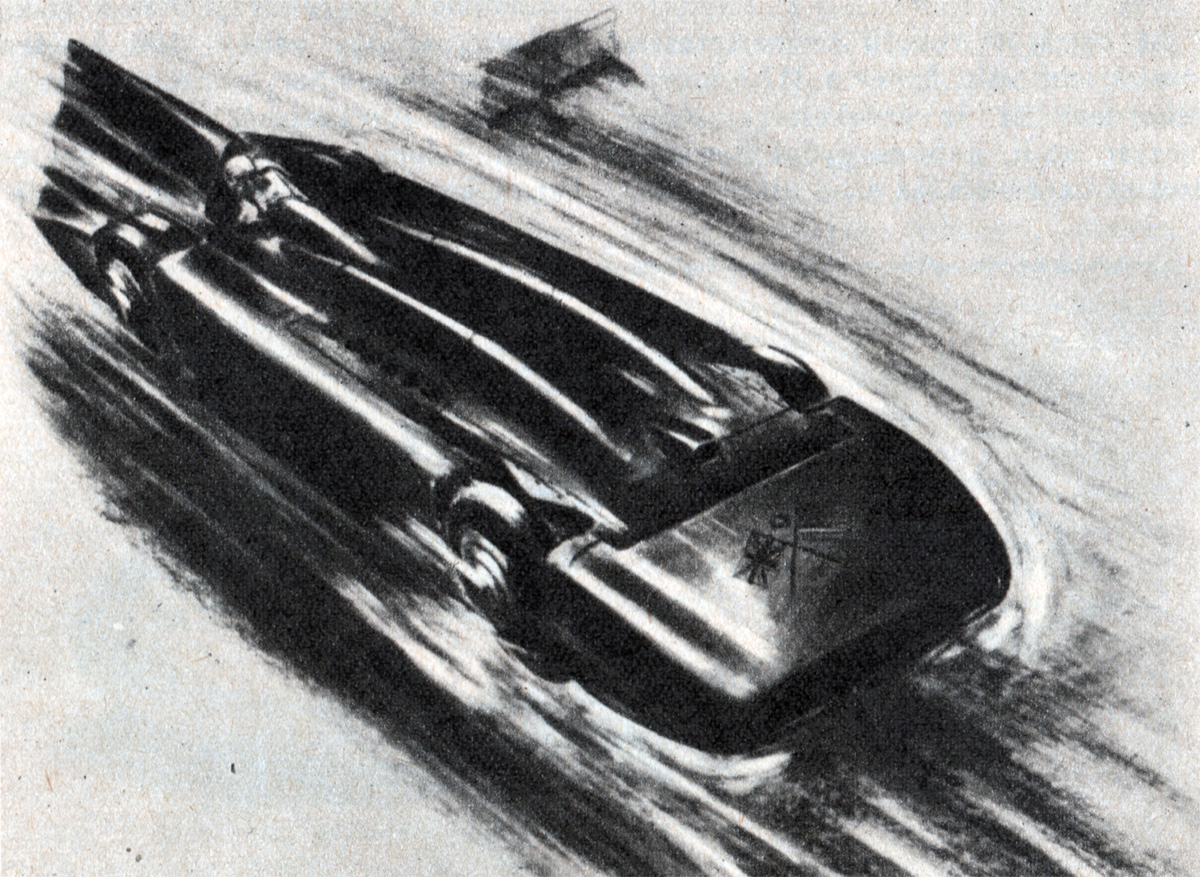
In: Korunk technikája, 1964. Gondolat Kiadó, Budapest, 1964.
Malcolm Campbell makes an attempt at the world land speed record on Daytona Beach, Florida.

Photo: R. H. Lesesne/Fox Photos/Getty Images
August 17th, 1935: Captain George Eyston’s record-breaking car Speed of the Wind at Maida Vale, London.
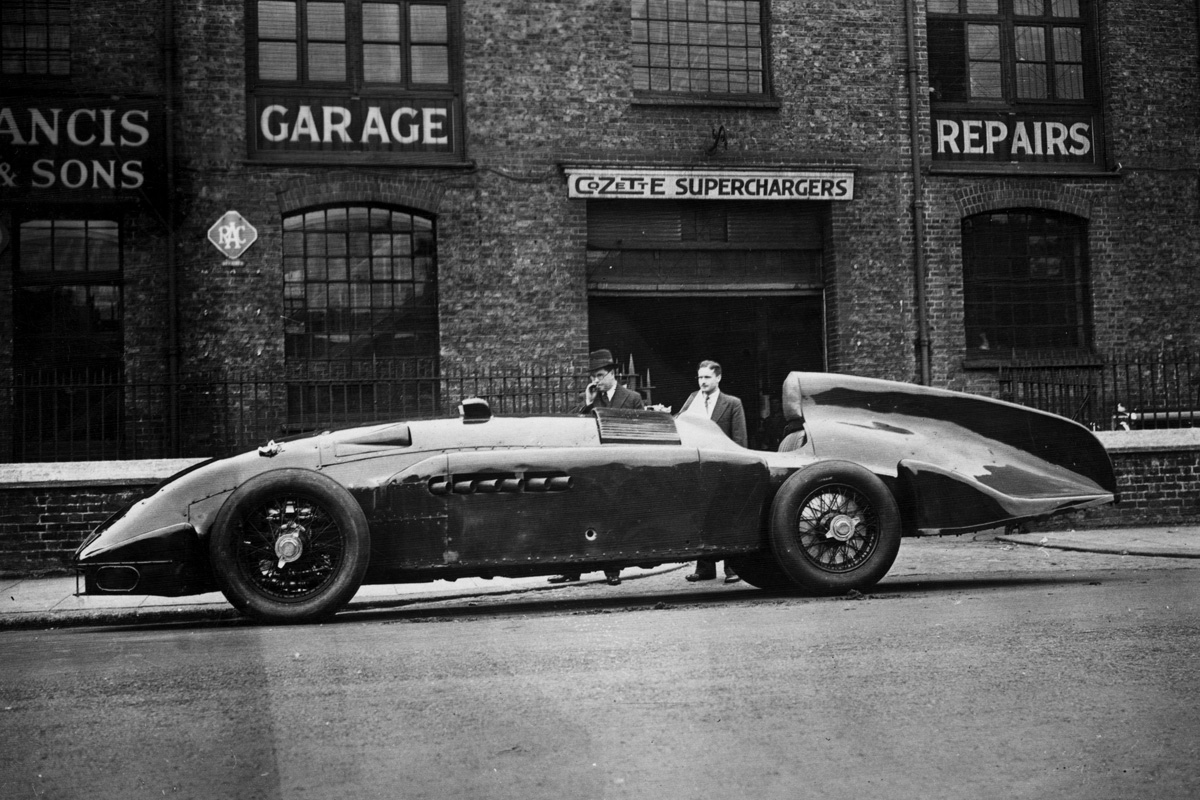
Photo: David Savill/Topical Press Agency/Getty Images
September 12th, 1937: Captain George Eyston’s twin engine car Thunderbolt broke the land speed record with a speed of 556 km/h (345 mph).
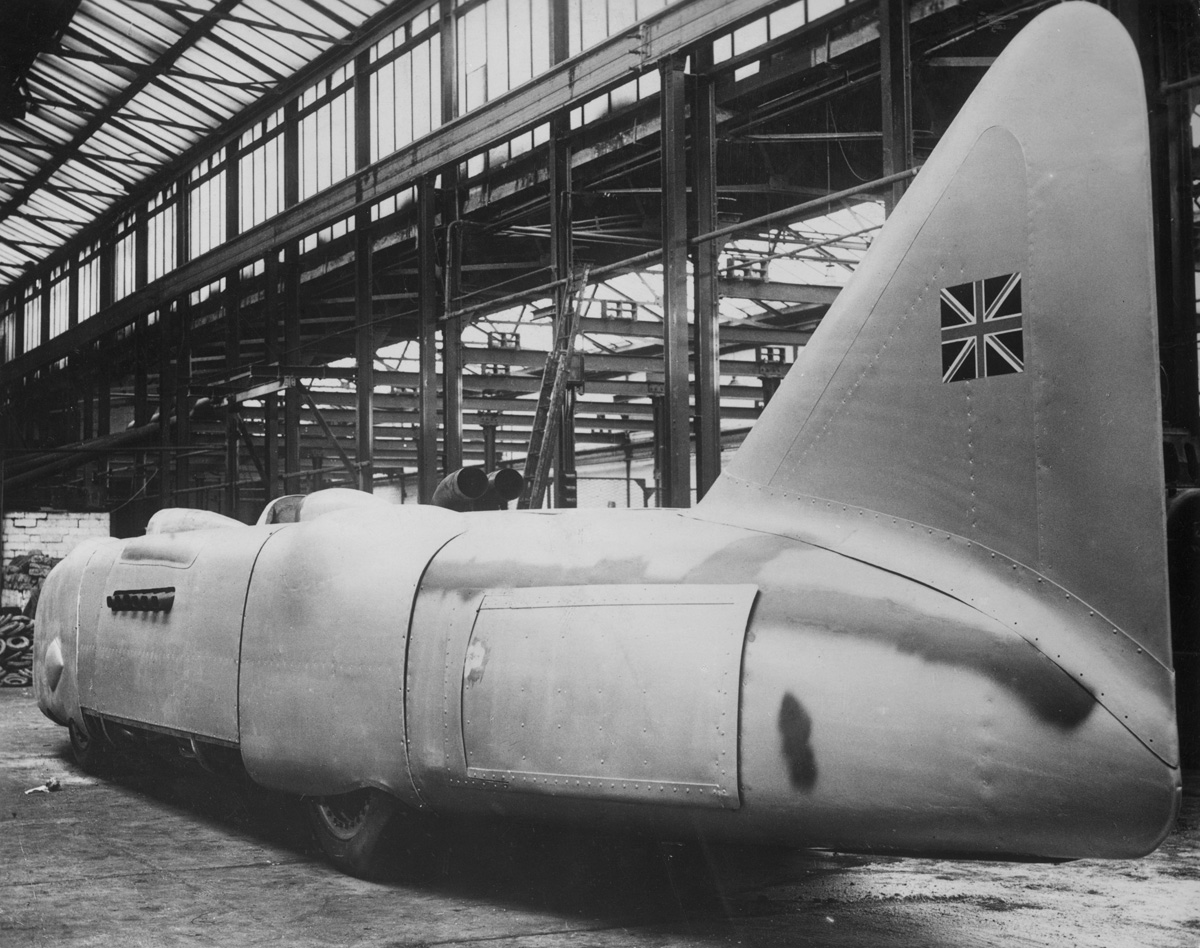
Photo: Davies/Topical Press Agency/Getty Images
Lieutenant-Colonel Alfred Thomas Goldie Gardner was the first English racing car driver to exceed 322 km/h (200 mph) in his specially-engineered MG, in 1939.
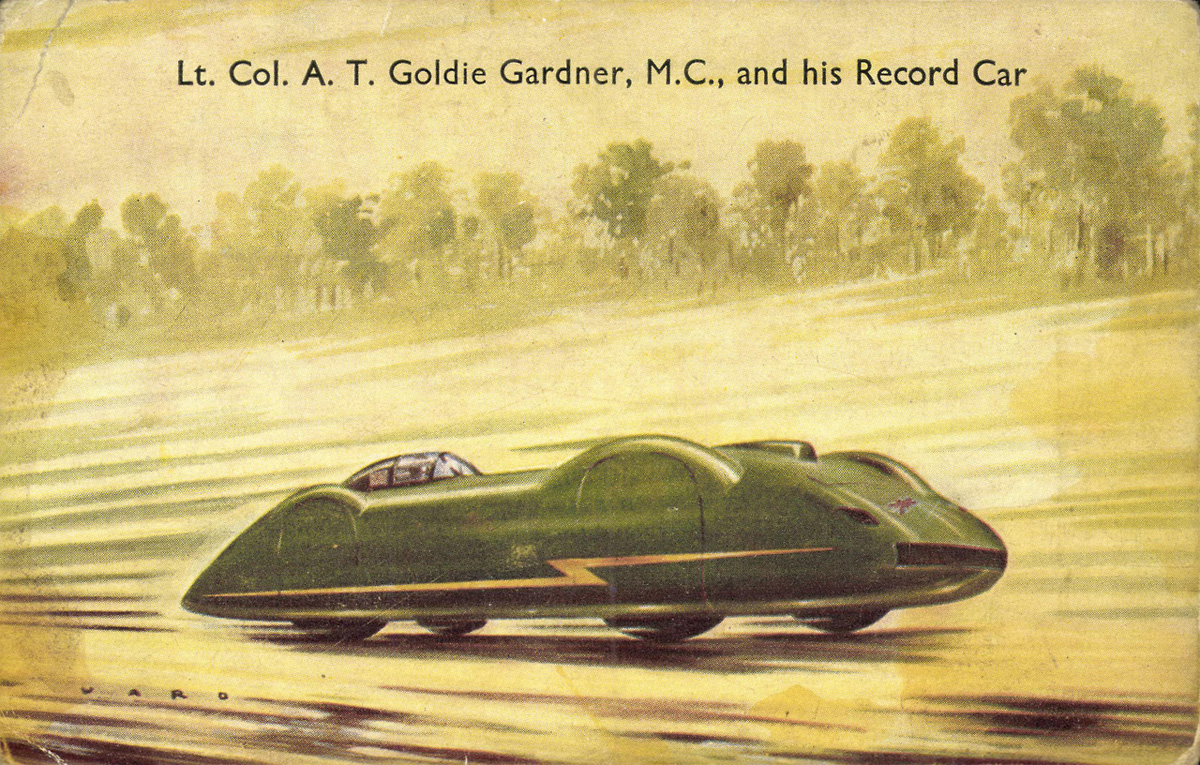
Source: Arcanum
John Cobb’s Railton Mobil Special was powered by two supercharged W-12 aircraft engines. It was the first ground vehicle to break 640 km/h (400 mph) in 1947.
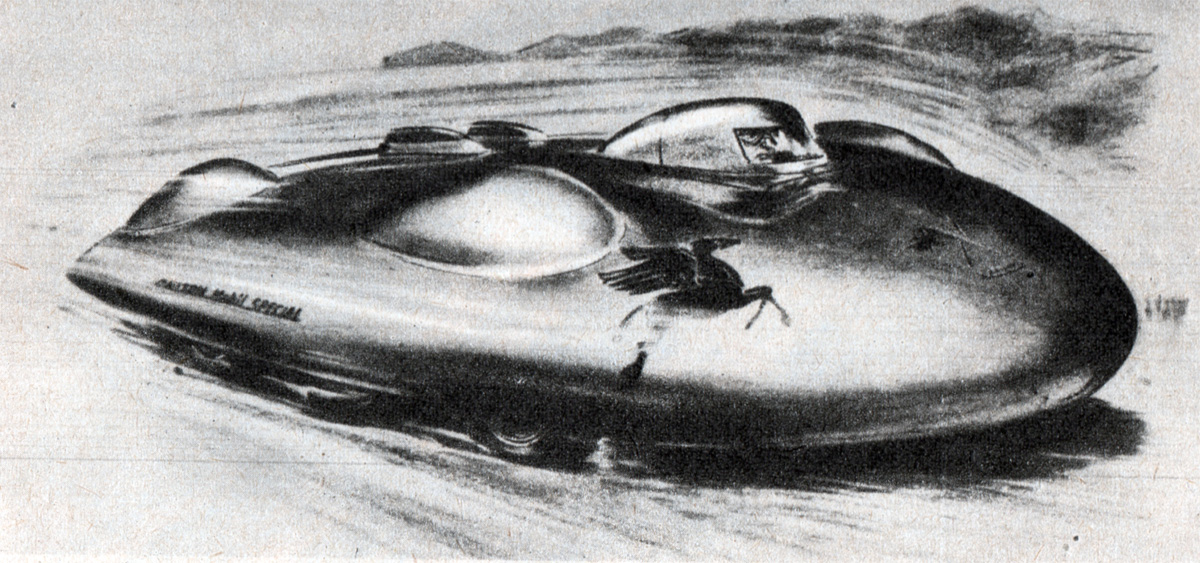
In: Korunk technikája, 1964. Gondolat Kiadó, Budapest, 1964.
The Fiat Abarth 750 Monza speed record car, from 1957, was designed by Pininfarina.
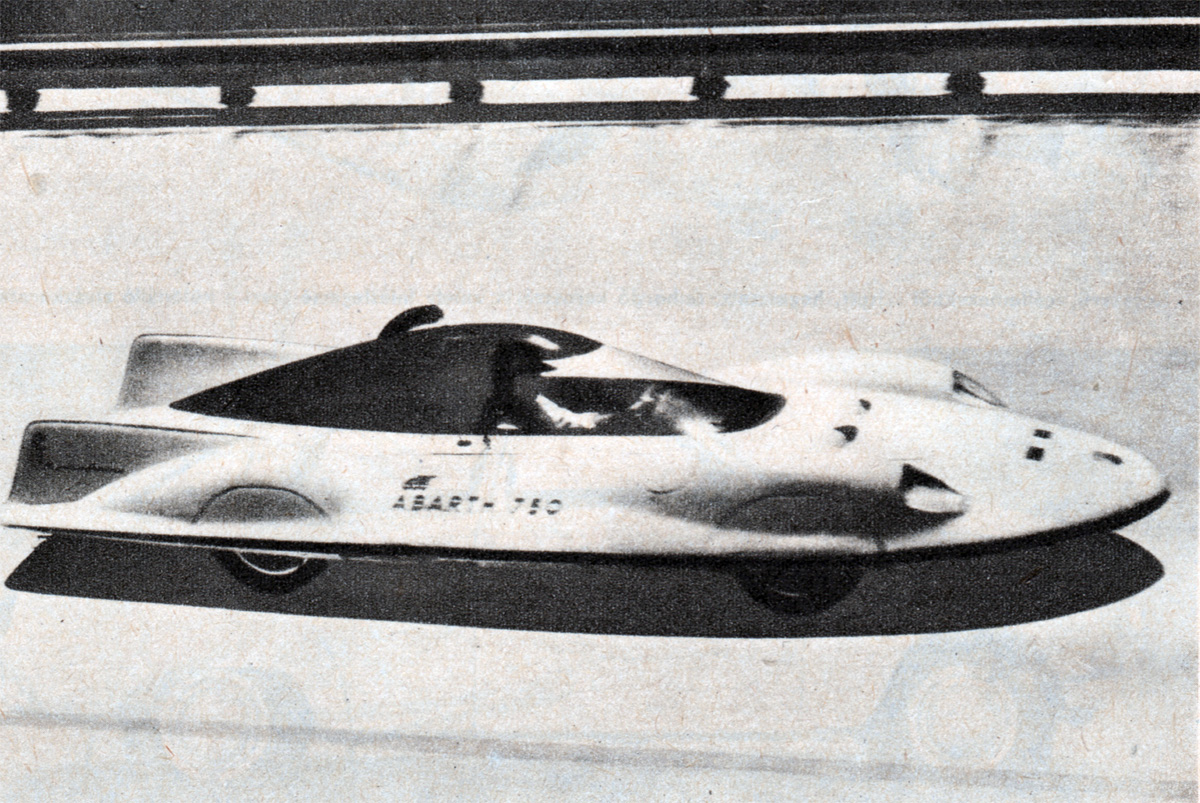
In: Korunk technikája, 1964. Gondolat Kiadó, Budapest, 1964.
Earlier Abarth speed record cars:
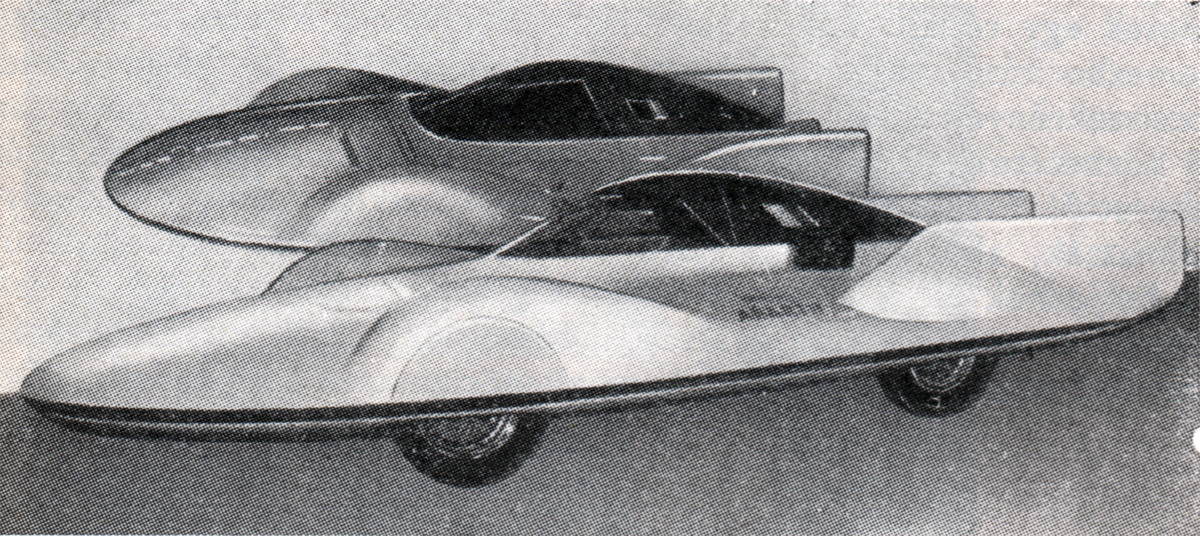
In: Ternai Zoltán: Korszerű gépkocsiszerkezetek. Műszaki Könyvkiadó, Budapest, 1961.
Donald Campbell’s Bluebird-Proteus CN7, the last land speed record car that was wheel driven, was built in 1960 and rebuilt in 1962. Campbell set a record of 648.7 km/h (403 mph) in July, 1964.
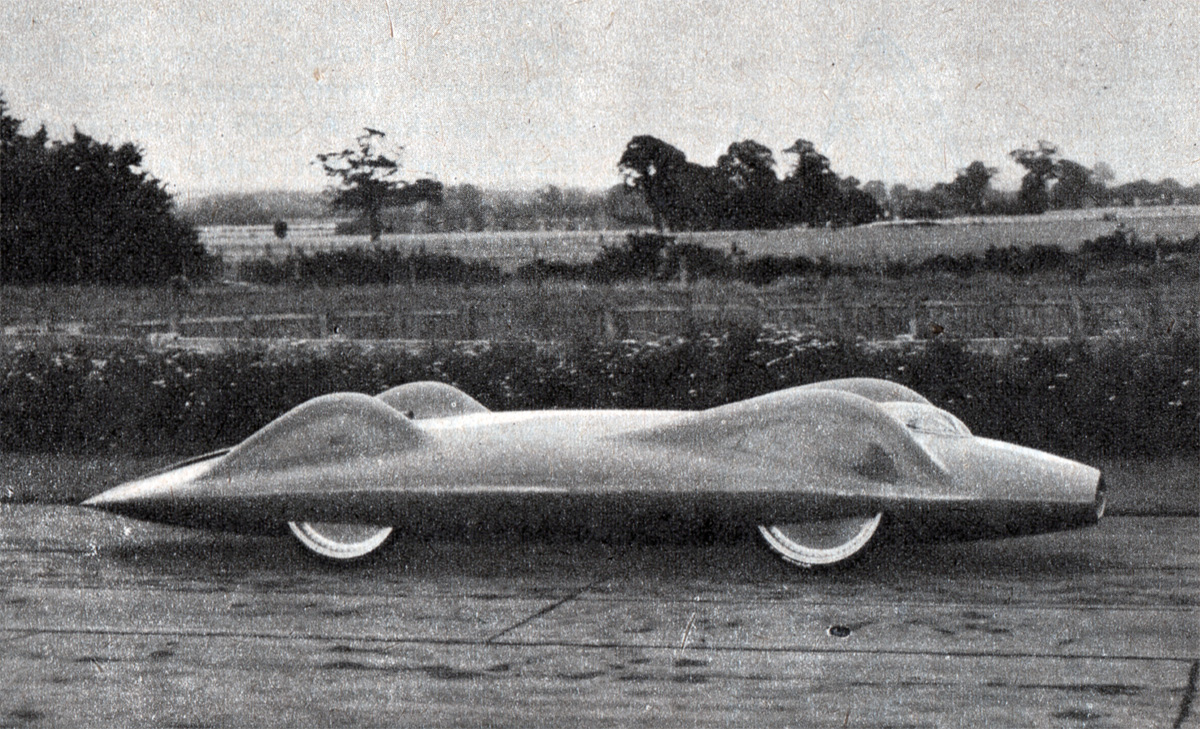
In: Korunk technikája, 1964. Gondolat Kiadó, Budapest, 1964.
Cutaway drawing of Campbell’s Bluebird.

In: Korunk technikája, 1964. Gondolat Kiadó, Budapest, 1964.
Donald Campbell’s Bluebird, powered by a Bristol Siddeley Proteus free turbine engine.
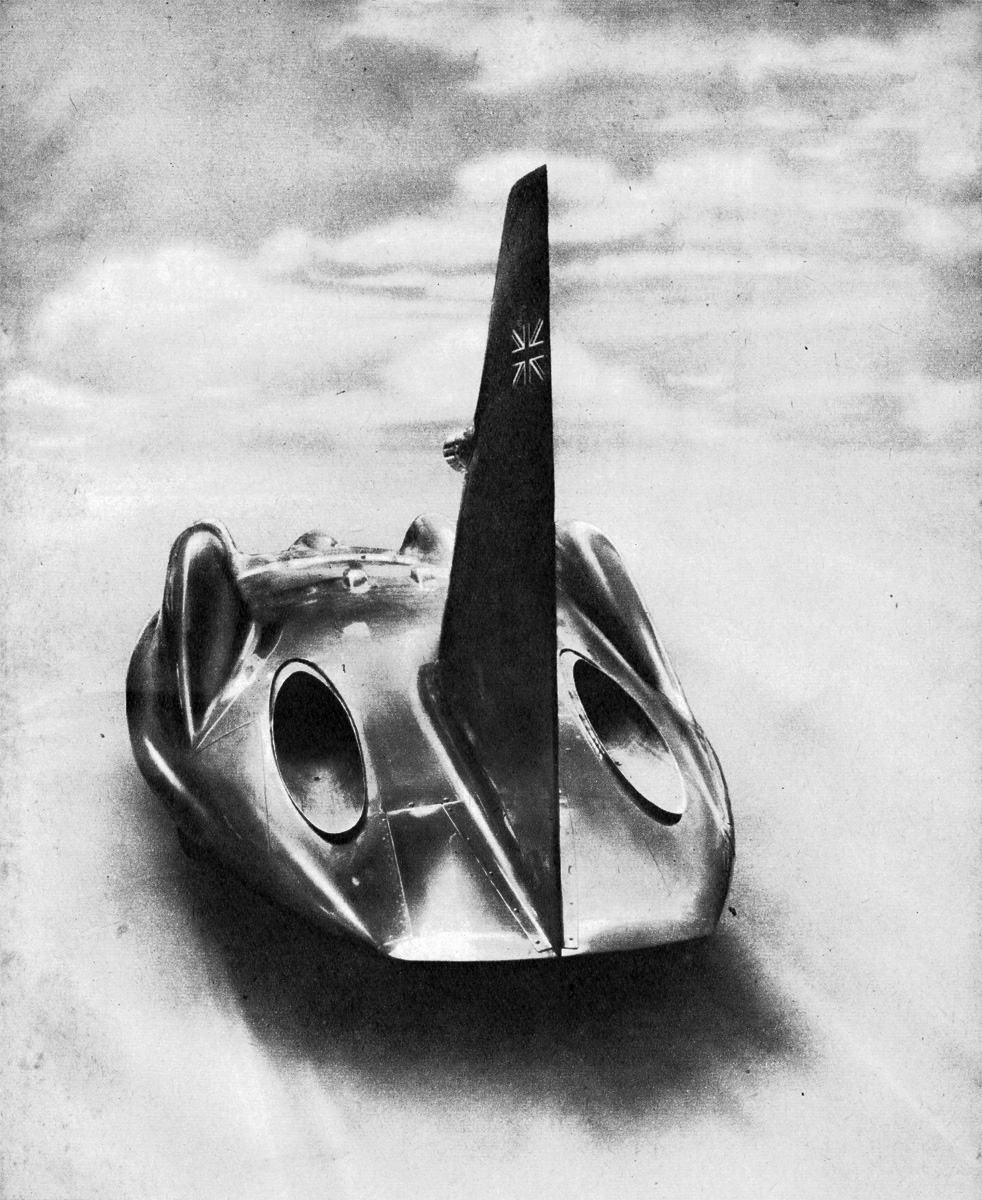
In: Autó-motor, 1964. VIII. 6.
Two technicians of Motor Panels Limited of Coventry, builders of the chassis and body of Donald Campbell’s Bluebird car, work on the front section of the frame at the Coventry works, England on June 30, 1960.
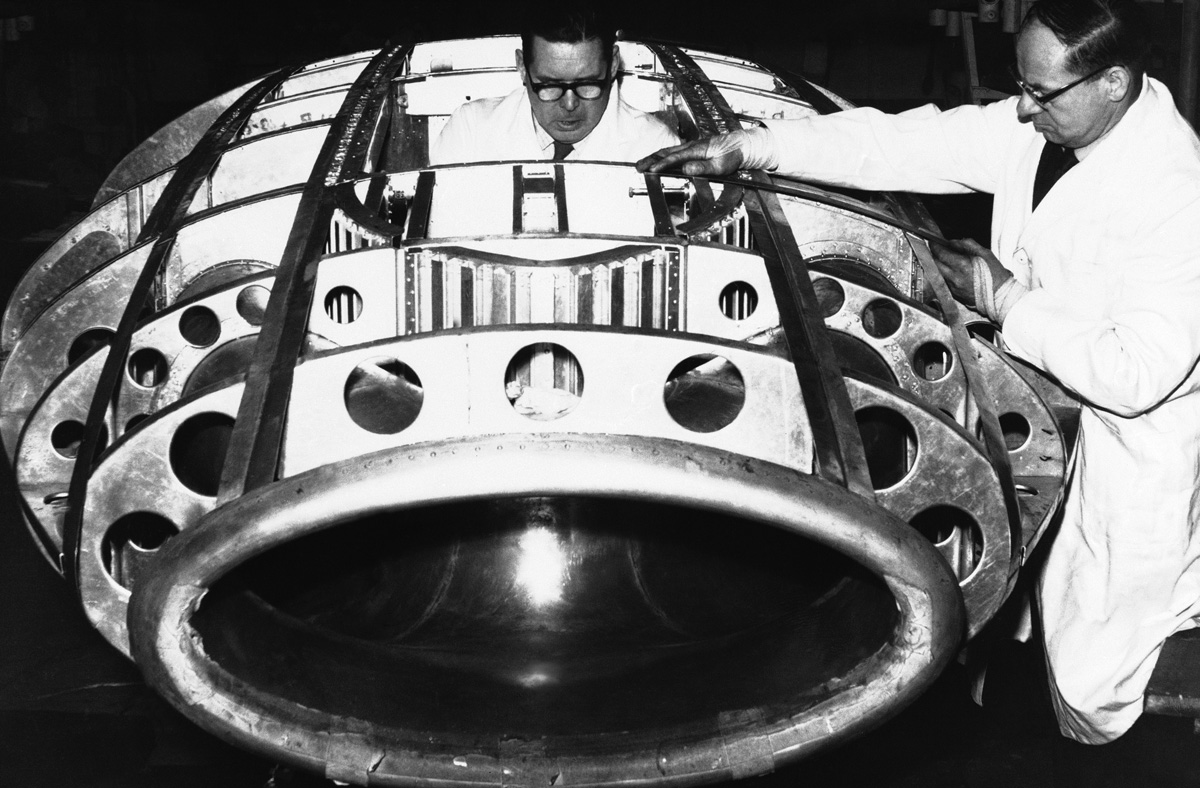
Photo: AP
Campbell’s Bluebird after an attempt to break the World Land Speed record.
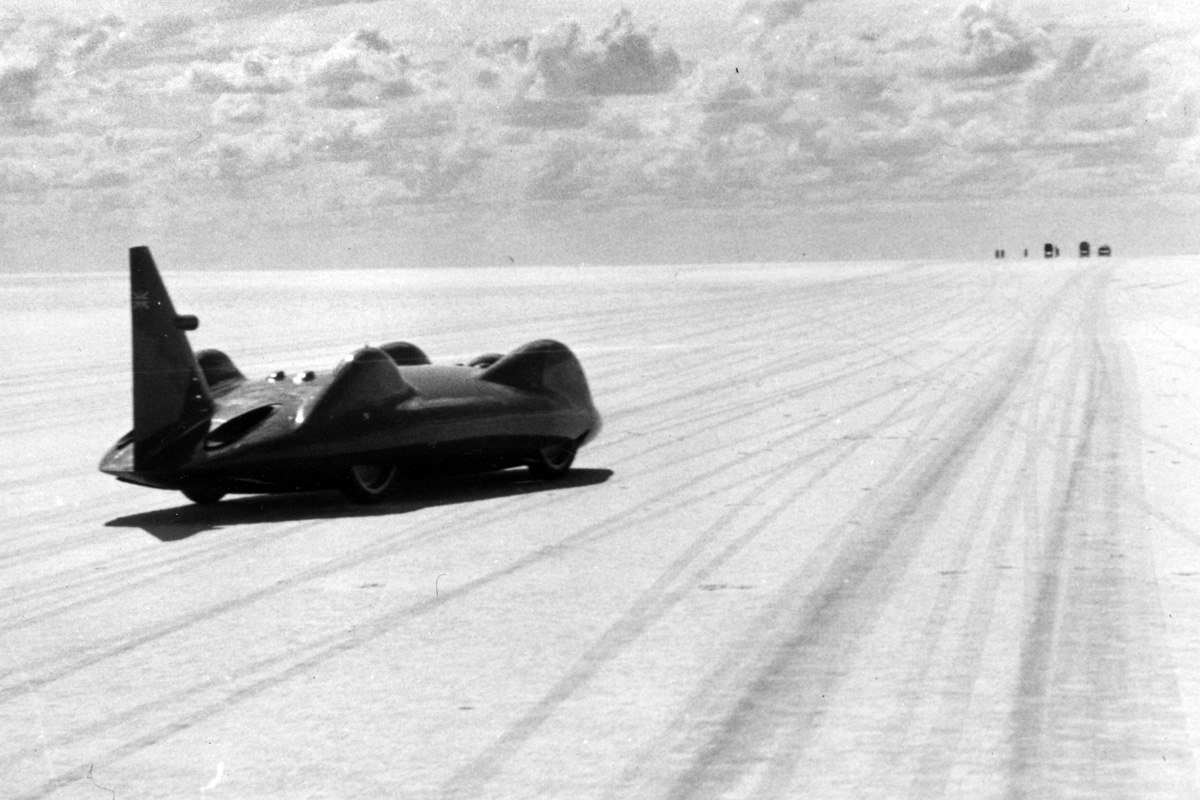
Photo: Keystone/Getty Images
Another shot of Campbell’s Bluebird:
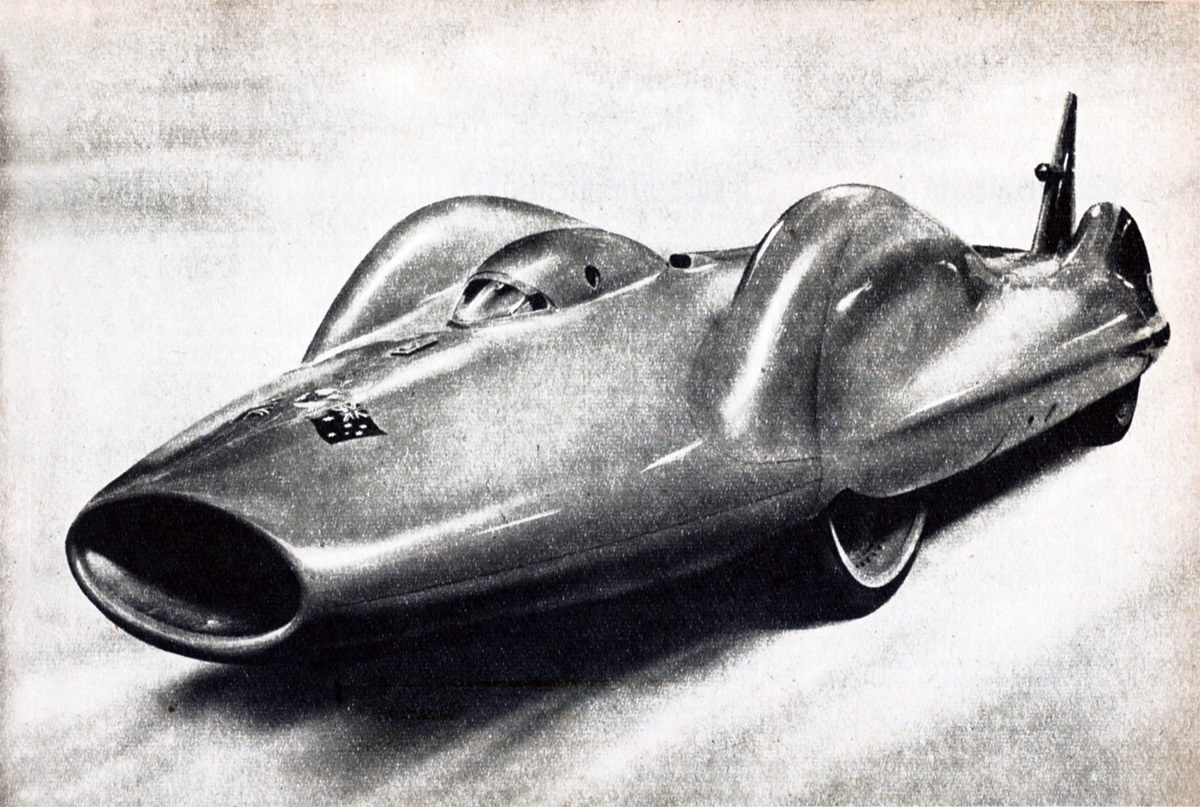
In: Autó-motor, 1967.I.21.
Craig Breedlove of Los Angeles and his jet-powered Spirit of America streak across the western Utah salt flats October 13th, 1964, to set a world land speed record of 754.3 km/h (468 mph).
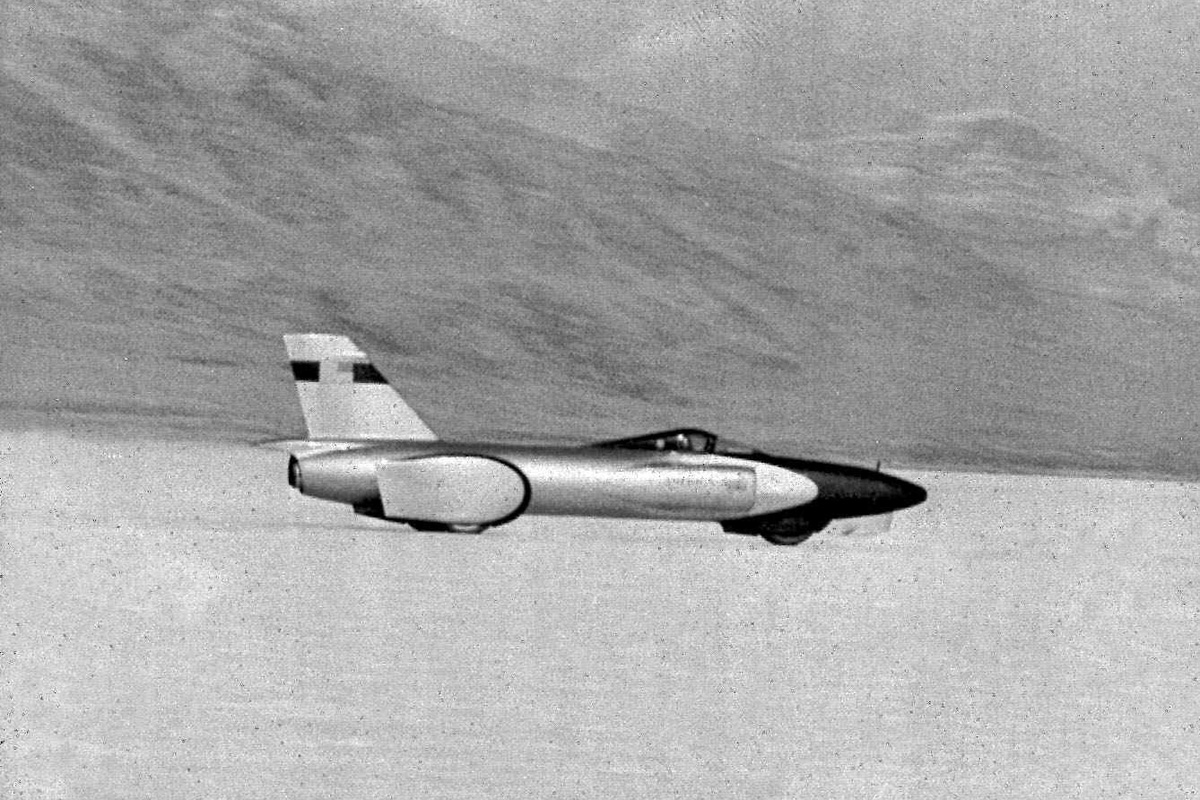
Photo: AP
Craig Bredlove and the Spirit of America.
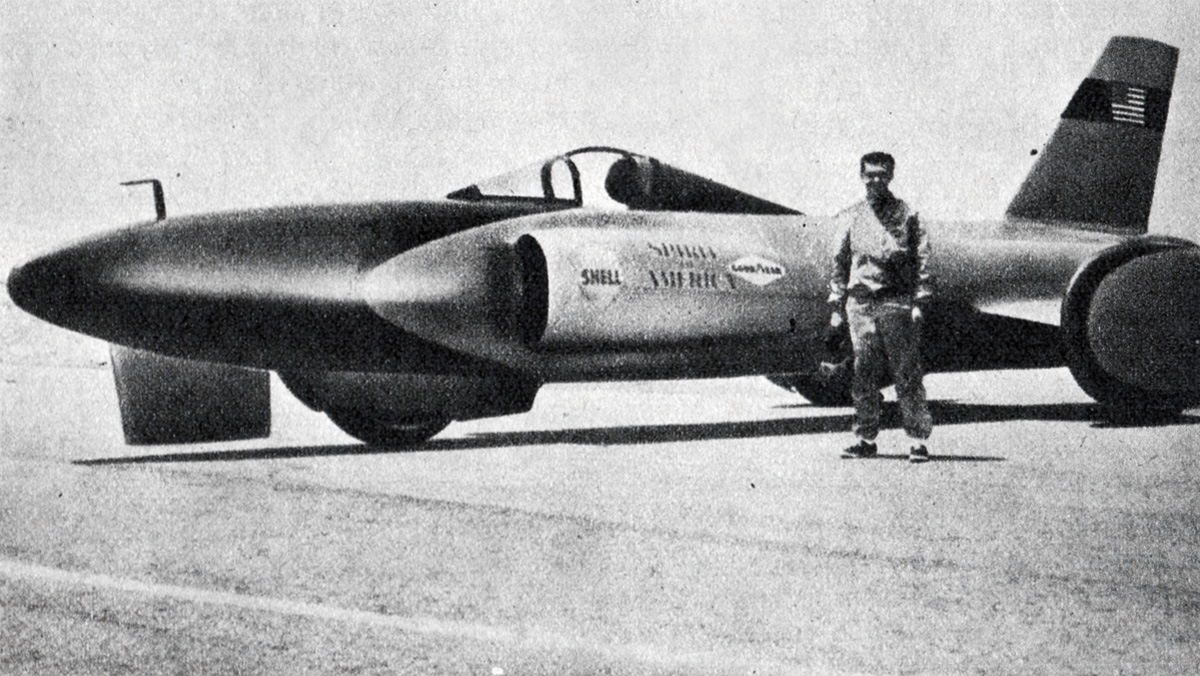
In: Korunk technikája, 1964. Gondolat Kiadó, Budapest, 1964.
The Soviet Hadi-5 was built with an internal combustion engine in 1964-1966. Hadi-5 set three national speed records in the late 1960s, driven by Vladimir K. Nikitin, head of the Laboratory of Fast Cars Hadi.
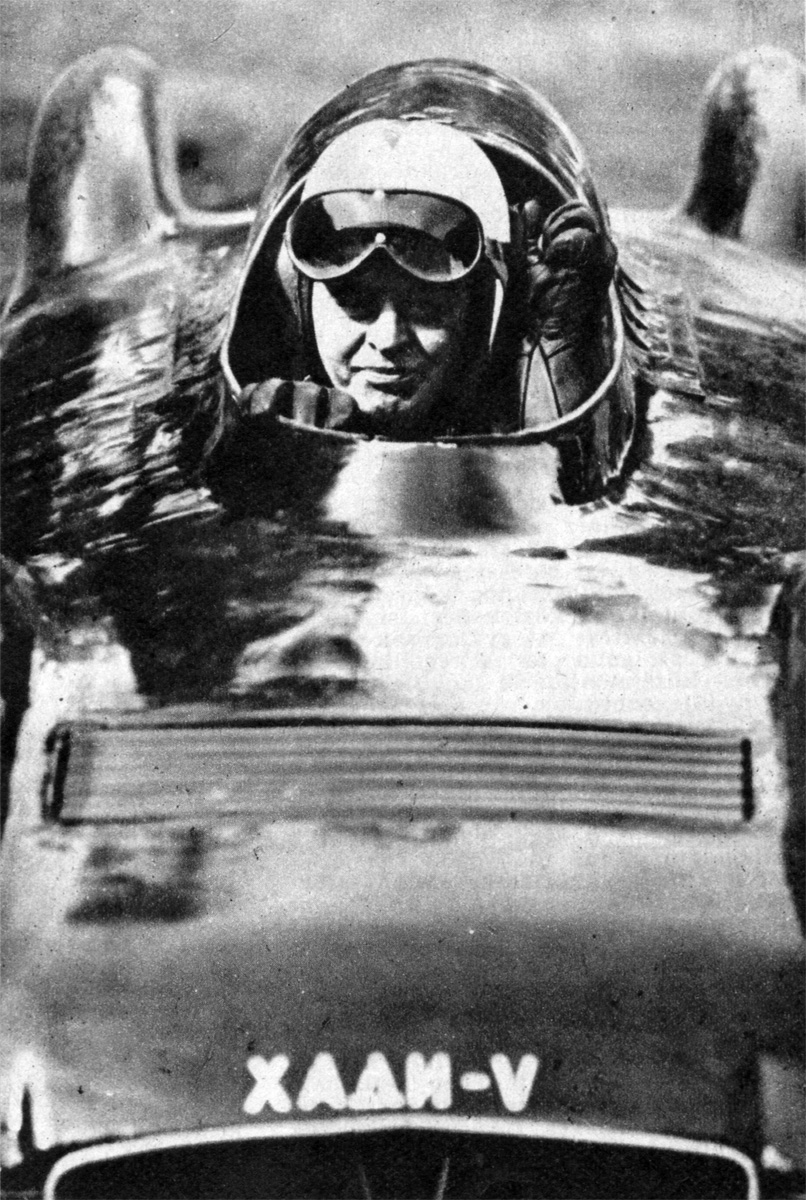
In: Autó-motor, 1973. XI. 6.
The Hadi-7 was created in 1966, set up with a 400 horsepower helicopter gas turbine engine. Its estimated speed was more than 400 km/h (248 mph), but that speed was never achieved due to the lack of suitable tracks.
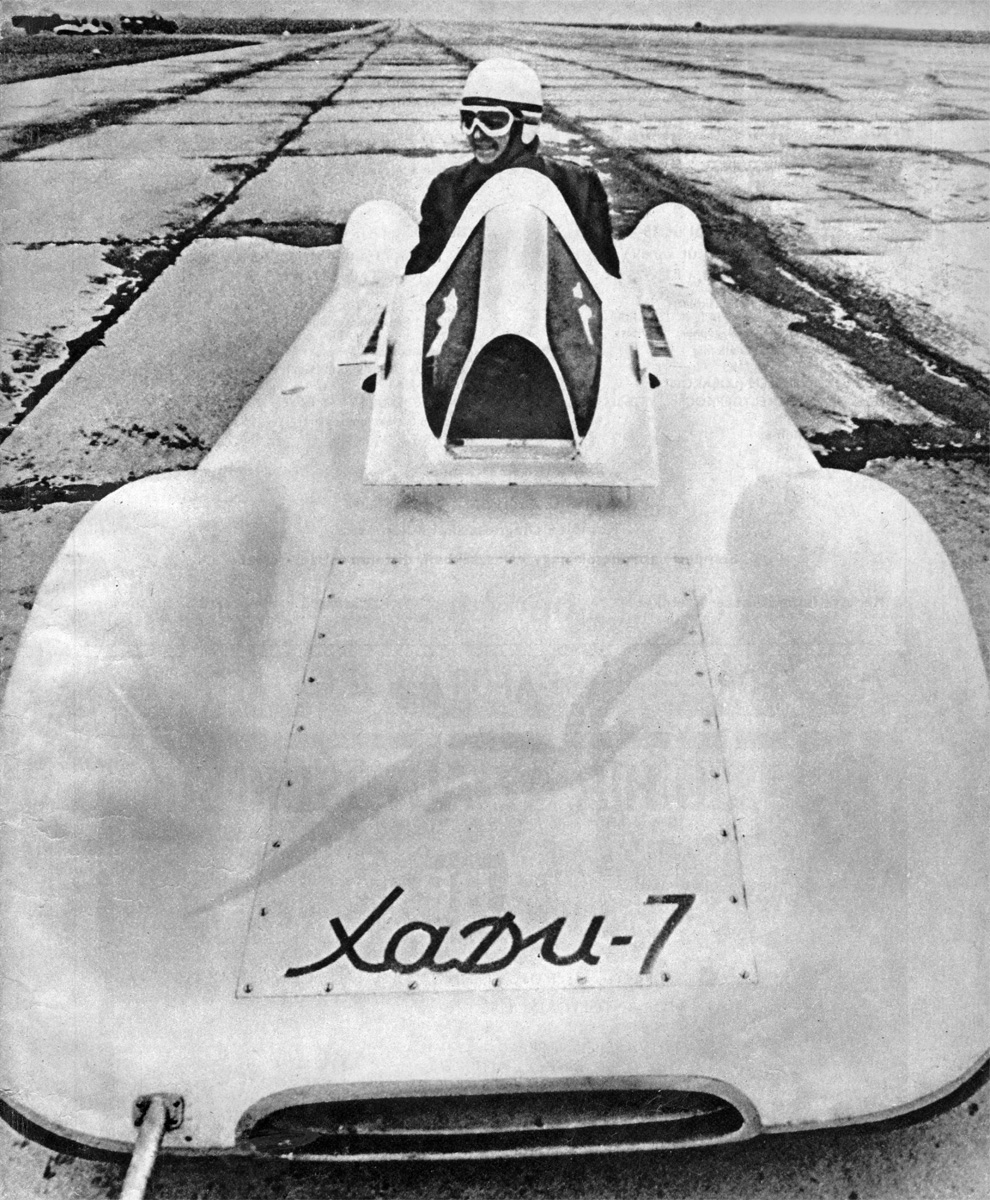
In: Autó-motor, 1973. XI. 6.
The Soviet’s Hadi-7 and its driver dressed up in special suit.
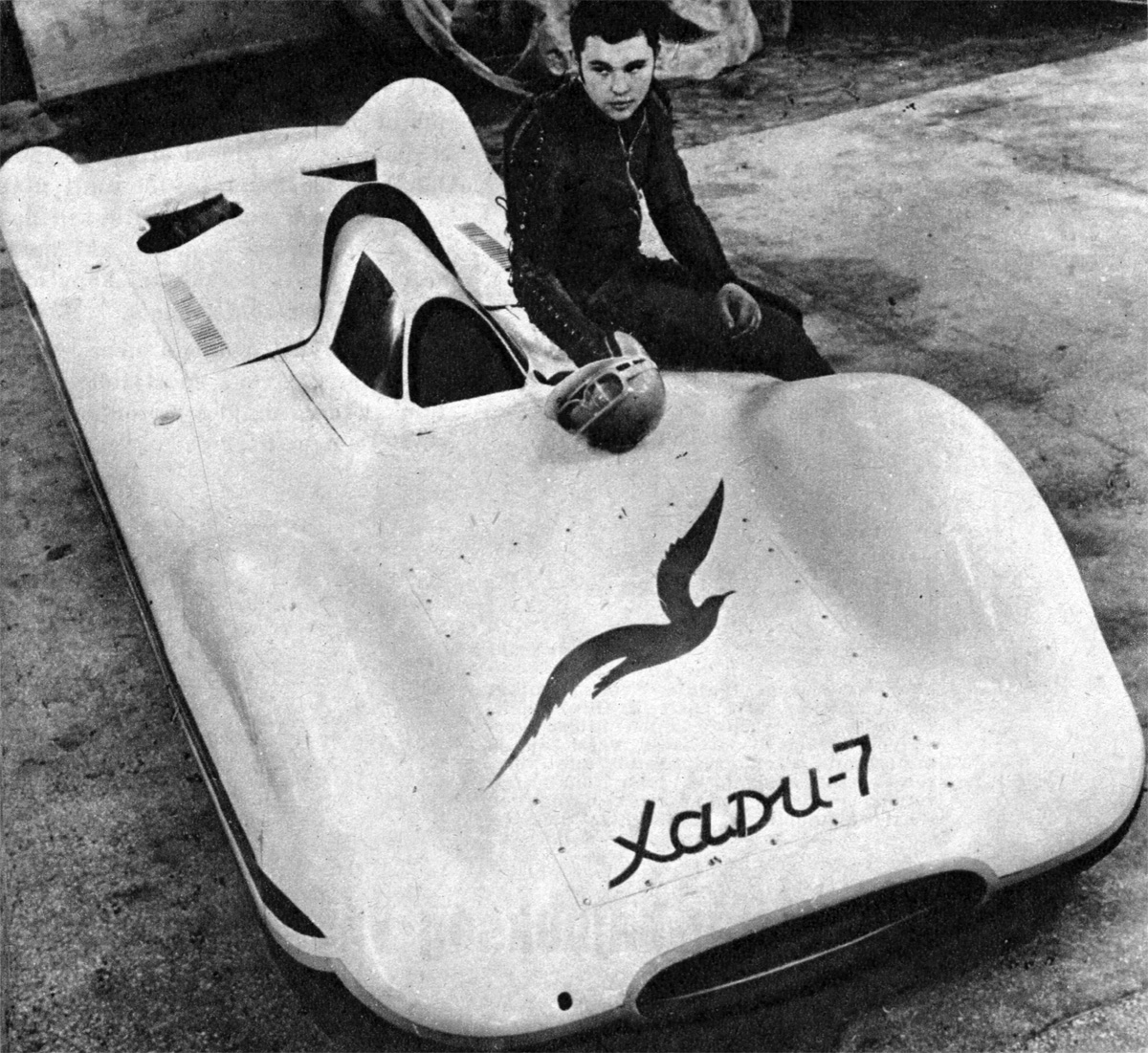
In: Autó-motor, 1970. II. 6.
The jet-powered Green Monster set the land speed record three different times in 1964 and 1965, the highest at 927 km/h (576 mph) at Bonneville.
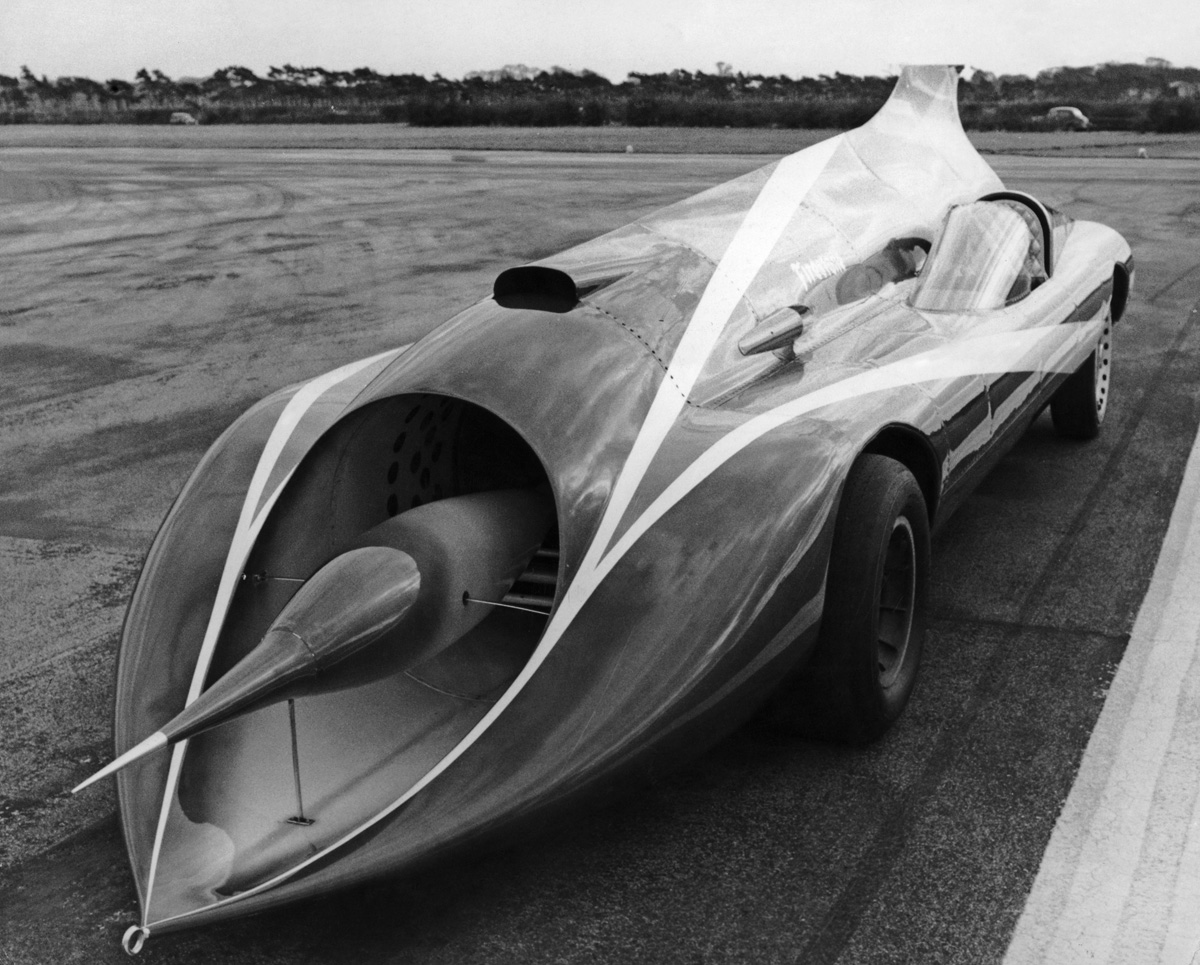
Photo: Keystone/Hulton Archive/Getty Images
The Blue Flame performs test runs just before Gary Gabelich set the new land auto speed record at Bonneville Salt Flats, Utah, on November 4th, 1970. The rocket-propelled car, which averages 1001.67 km/h (622 mph), is powered by liquified natural gas and hydrogen peroxide propellants.
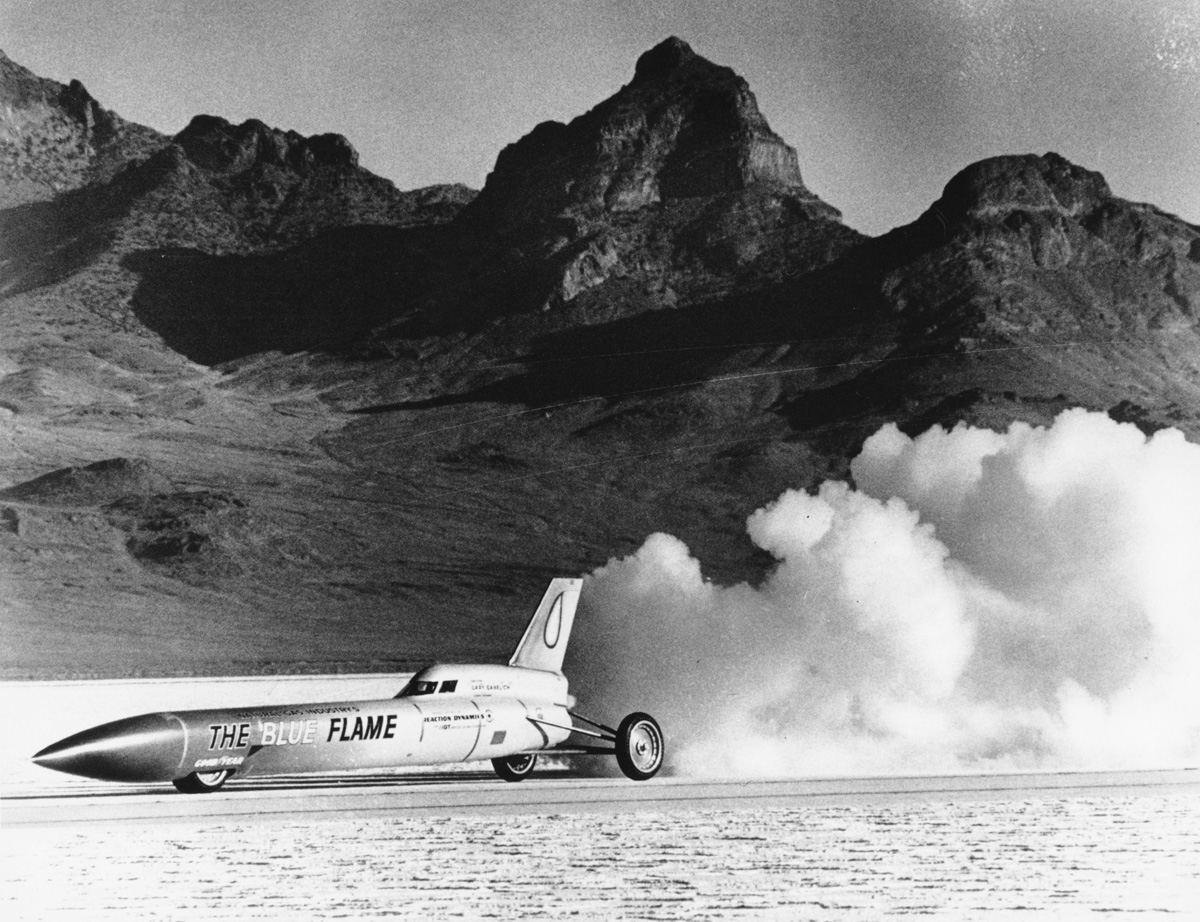
Photo: AP
September 25th, 1980: The jet-propelled car Thrust 2 driven by Richard Noble, breaking the British land speed record at RAF Greenham Common airbase in Berkshire.
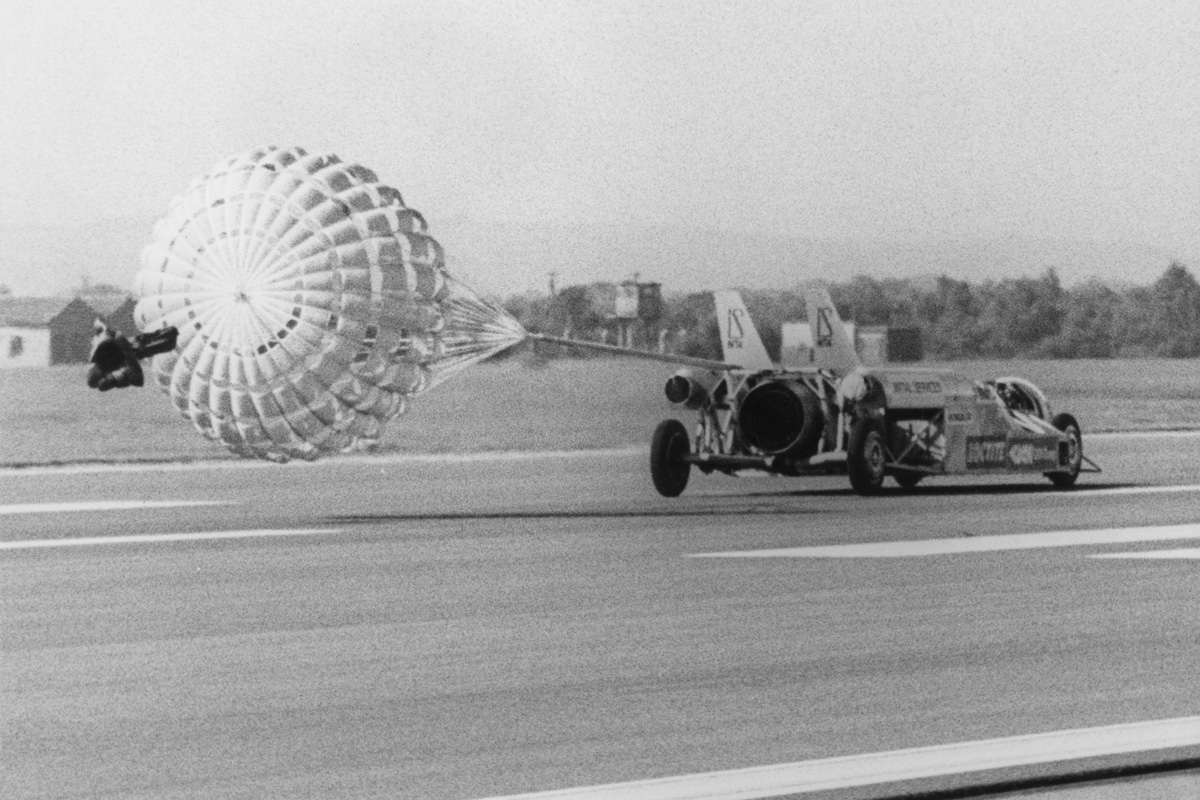
Photo: Ian Tyas/Keystone/Getty Images
Former land speed record holder Craig Breedlove races in his jet-powered car Spirit of America Formula Shell LSRV on October 23rd, 1996. The car was designed to break the sound barrier, but failed to do so.
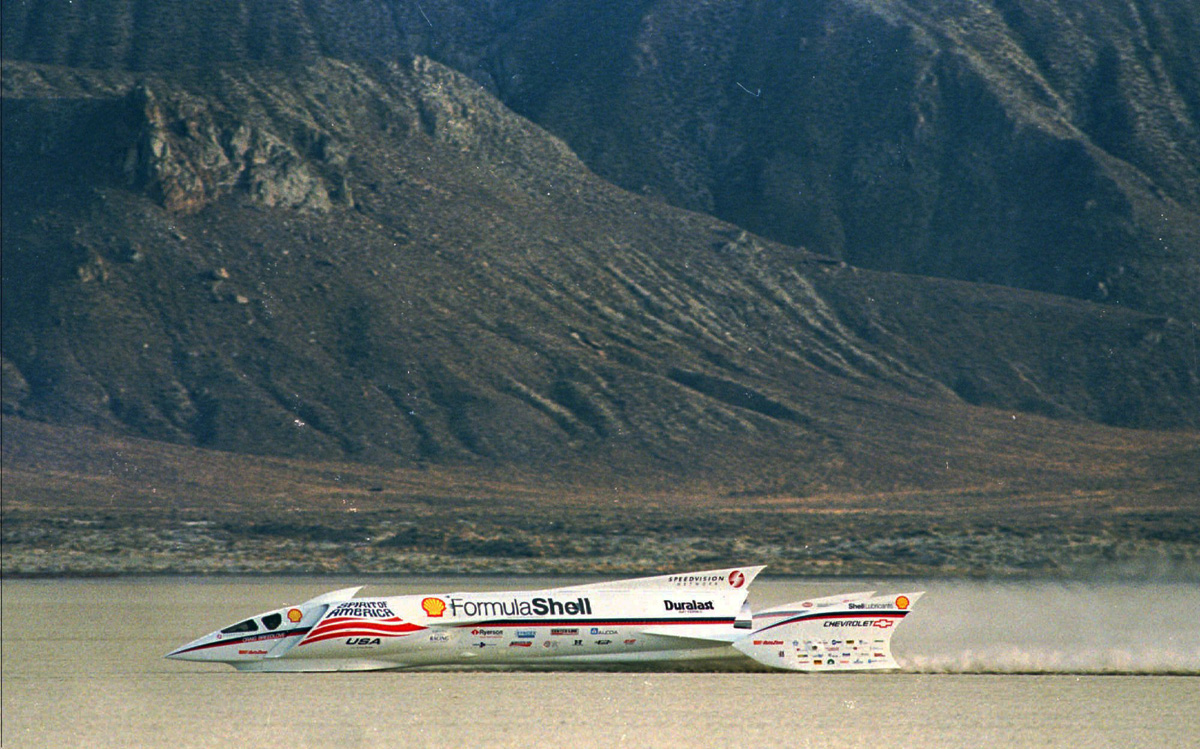
Photo: Rich Pedroncelli/AP
1997: Royal Air Force fighter pilot Wing Commander Andy Green poses with Thrust SSC, the first car to officially break the sound barrier.
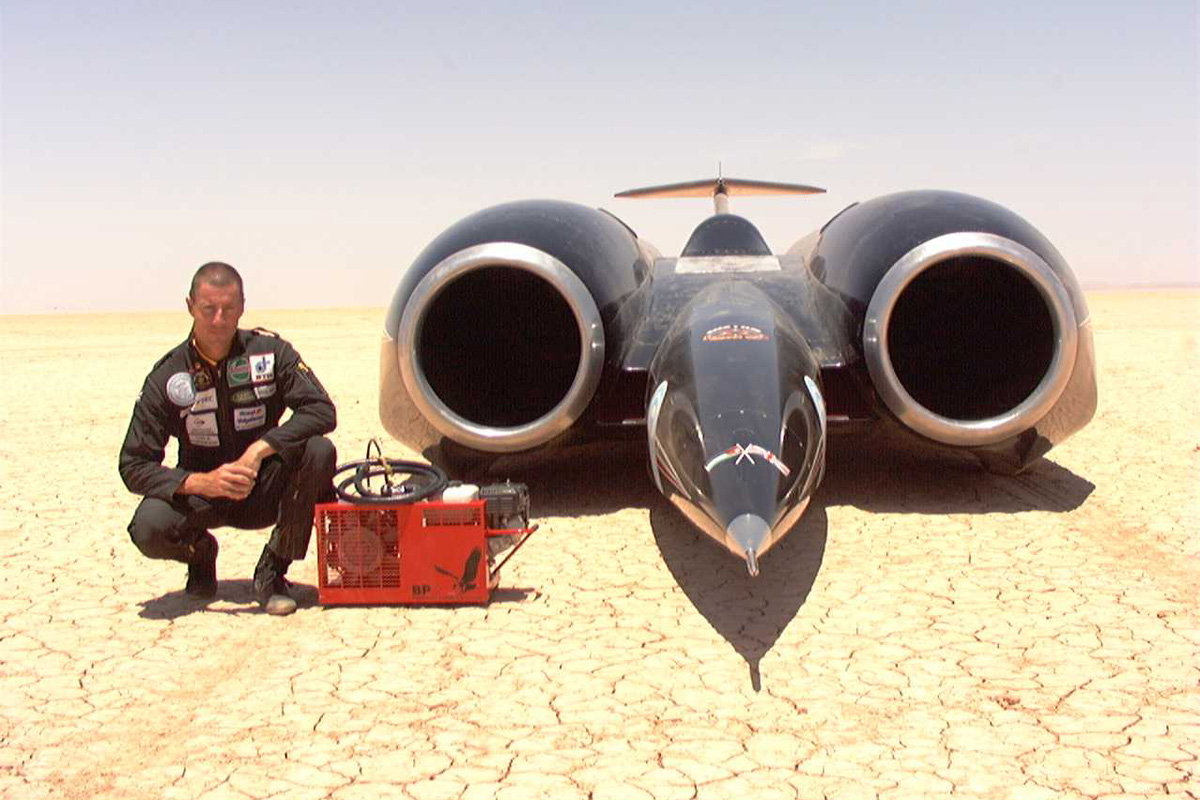
Photo: Getty Images
The British jet-propelled Thrust SSC holds the World Land Speed Record, set on October 15th, 1997, at a speed of 1,228 km/h (763 mph).
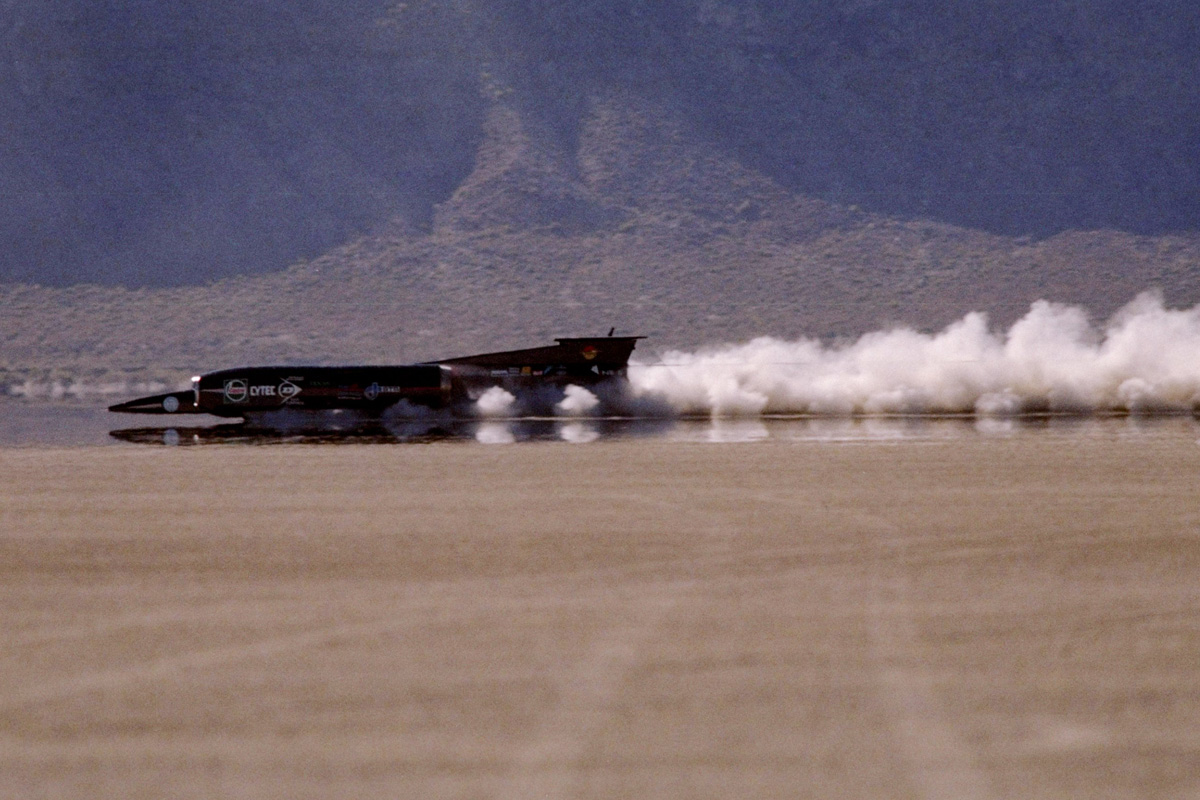
Photo: David Taylor/Getty Images
Colin Fallows of Northampton drives his afterburning jet car Vampire in an attempt to break the British Landspeed Record of 483 km/h (300 mph) on July 7th, 2006 in Fairford, England.
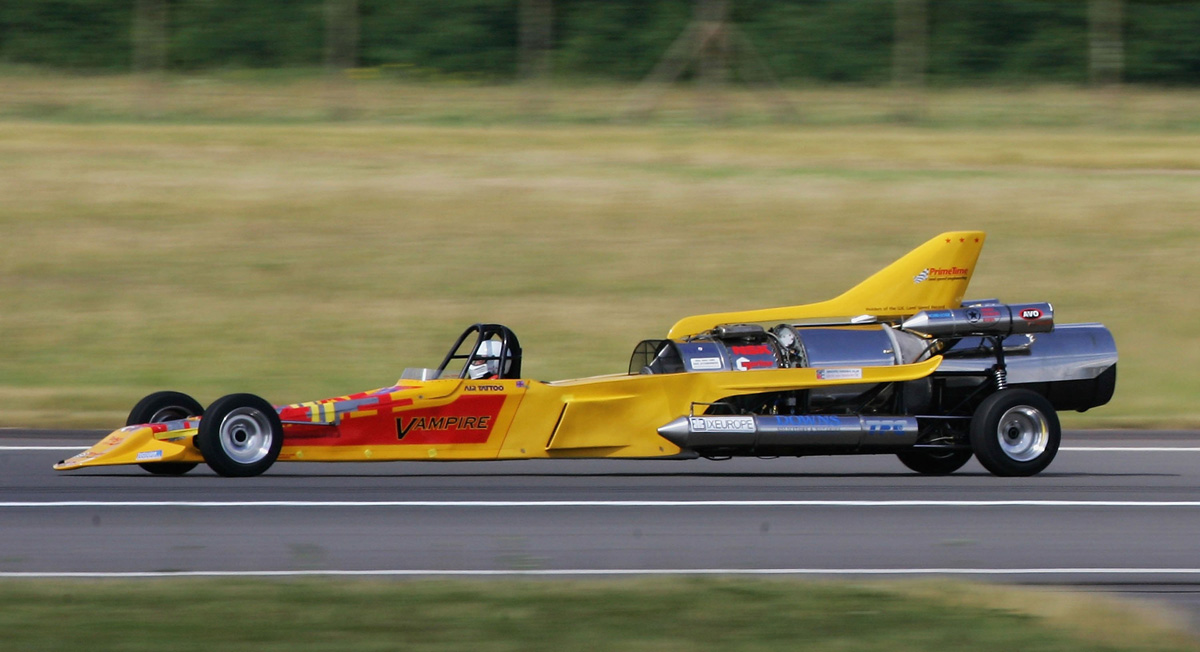
Photo: Matthew Lewis/Getty Images
Charles Burnett III drives the British Steam Car at Rogers Dry Lake, where he broke the land speed record for a steam-powered car on August 25th, 2009 in Edwards Air Force Base, Mojave Desert, California, USA. Racing at 223.7 km/h (139 mph) he beat the 204.3 km/h (126 mph) record set by Fred Marriott in his Stanley Steamer in 1906.
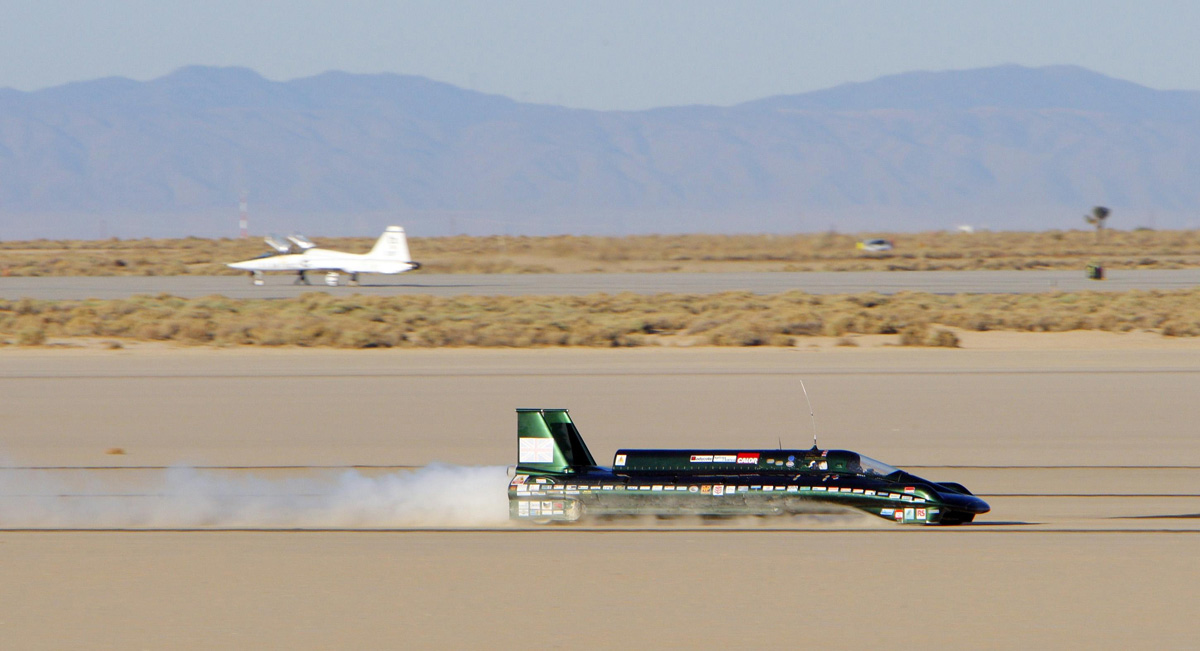
Photo: Chris Ison/Getty Images
The Bluebird Electric car makes a test run at Gloucester Airport on August 11th, 2011 in Gloucester, England. Driver Don Wales, the grandson of Sir Malcolm Campbell and nephew of Donald Campbell, holds the current UK record of 220.5 km/h (137 mph) reached at Pendine Sands in 2000.
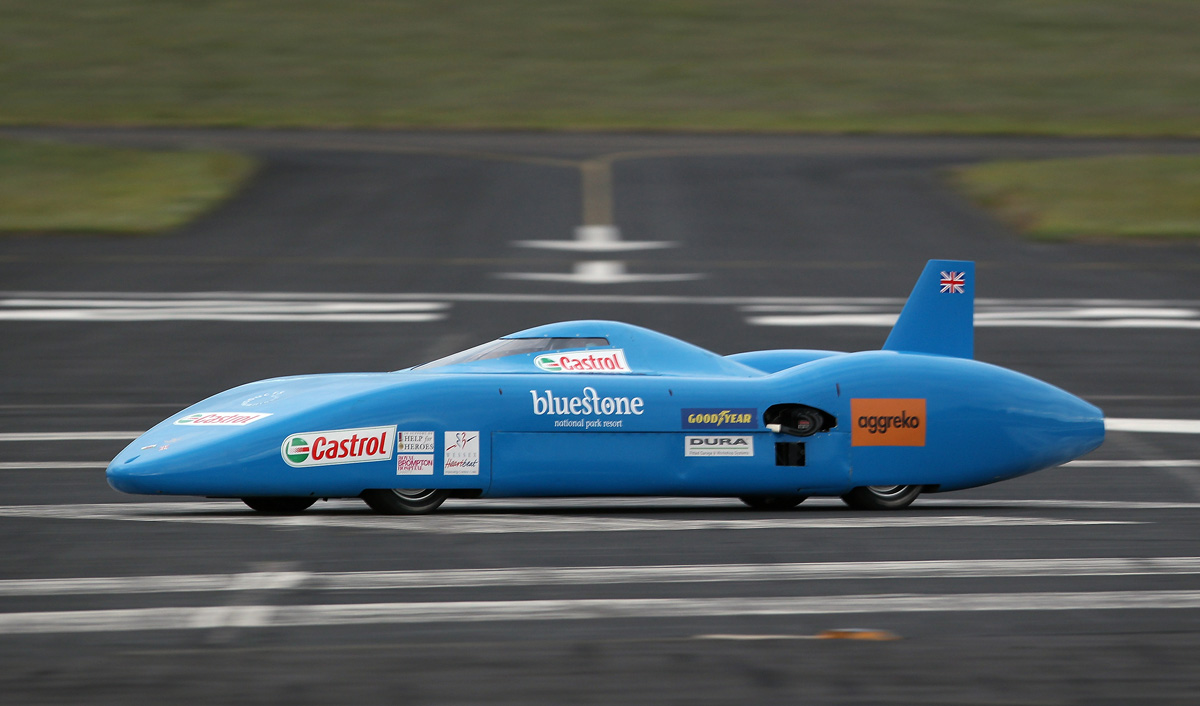
Photo: Peter Macdiarmid/Getty Images
The Bloodhound Super Sonic Car displayed at Downing Street on June 24th, 2013 in London, England. The jet powered car is currently in development. Its goal is to set a 1,000 miles per hour (1,609 km/h) world land speed record. Wing Commander Andy Green will be driving the Bloodhound SSC.
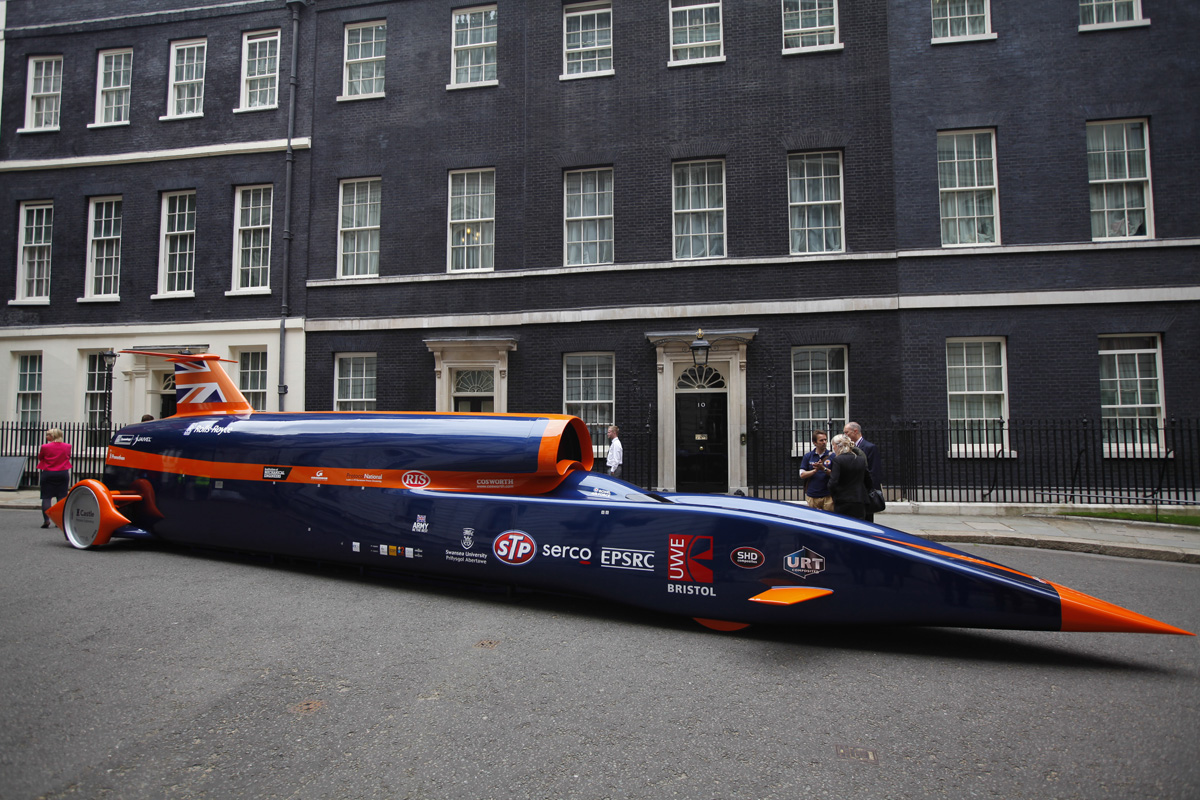
Photo: Dan Dennison/Getty Images
The JCB Dieselmax driven by Andy Green set a new unofficial world diesel-powered land speed record of over 527.8 km/h (327 mph) over two runs on Tuesday, August 22nd, 2006, on the Bonneville Salt Flats in Utah.
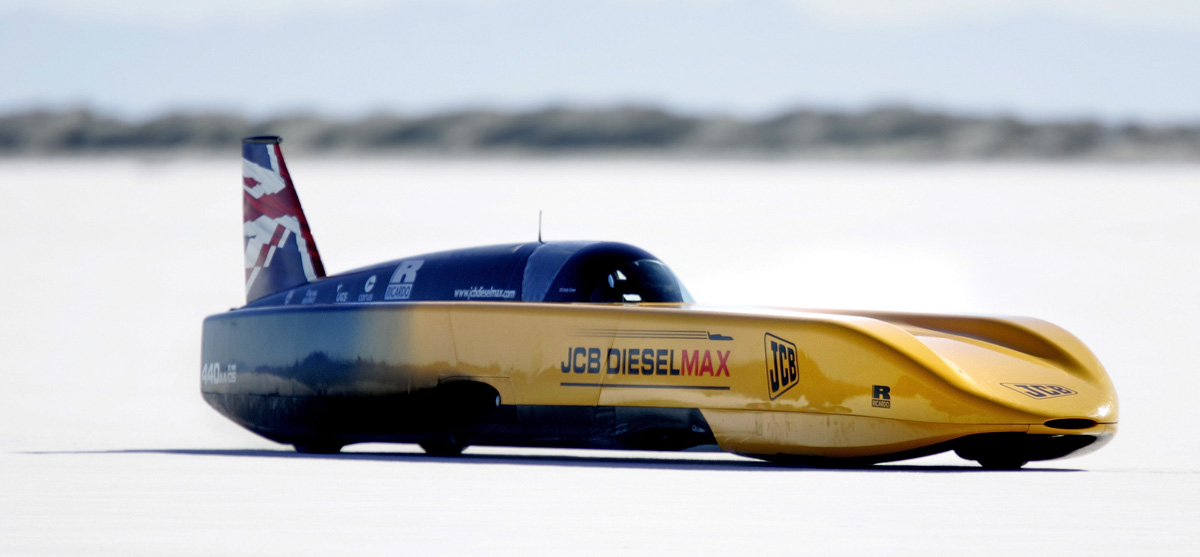
Photo: Douglas C. Pizac/AP
An electric car designed and built by Brigham Young University engineering students and nicknamed Electric Blue set a world land speed record for its weight class at Bonneville after averaging 250.7 km/h (155 mph) over its two qualifying runs.
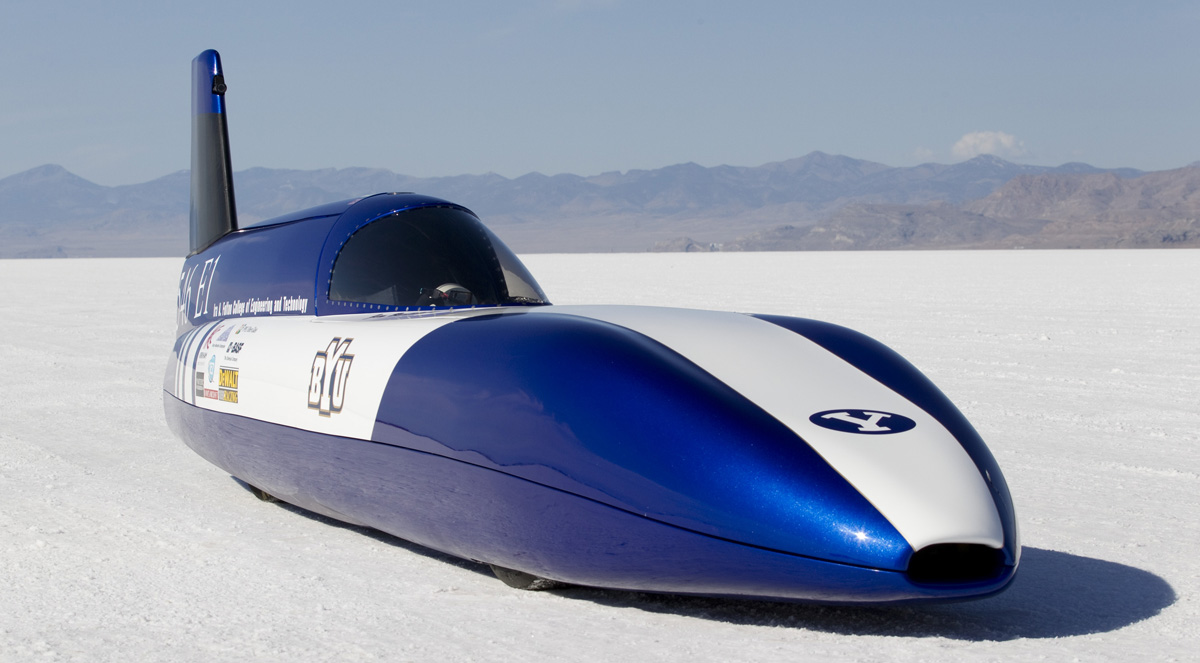
Photo: Jaren Wilkey/BYU/AP
Top photo: 14th November 1945: A view of the driver’s cockpit of the 3,000 horsepower Mercedes Benz at the Daimler Benz works in Stuttgart. It has been designed to break the land speed record with expected speeds of 450 miles per hour. (Photo: Fox Photos/Getty Images)
